The Japanese American Storytelling Program
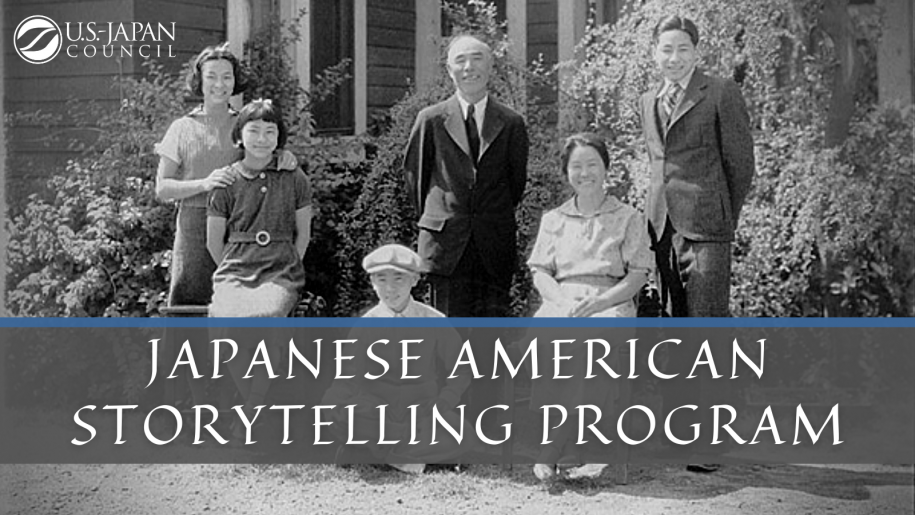
Overview
JASP is a group of USJC members including Nikkei Sansei, Yonsei and Gosei (multi-generational Japanese Americans), “Shin Issei,” “Shin Nisei” (Japanese American generations emigrated after WWII), and Bi-Racial/Multi-Ethnic Nikkei. They are native English, native Japanese or proficient bi-lingual speakers residing in Japan, Hawaii, California, and other parts of the U.S. Mainland. JASP delivers presentations to students at universities throughout Japan in English and Japanese, based upon Host Professor requests.
JASP presentations utilize the art of storytelling woven with many opportunities for students to engage in discussions throughout each presentation. The stories are personal histories, making each one of them unique. JASP seeks to strengthen the relationship between Japan and the United States by connecting the past with the present to create a better future. JASP believes it is crucial to nurture university students in Japan towards a global perspective through inspiring personal stories.
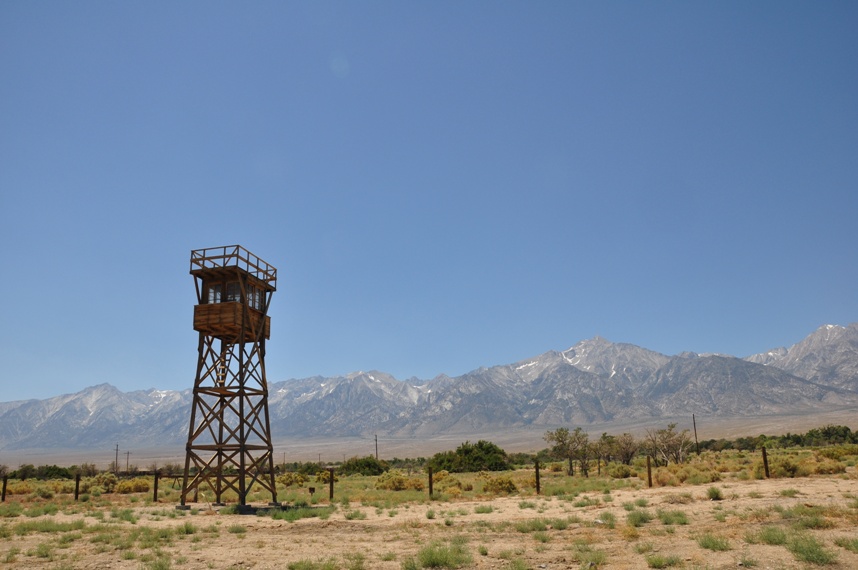
Our Purpose and Mission
JASP Purpose: To collaborate with educators at universities in Japan to nurture students towards an inclusive global mindset.
JASP Mission: To share inspiring “Japanese American” personal and family experiences with university students in Japan through real-time storytelling and active discussions.
Our Story
JASP was inspired by the initial vision of Takashi Ohde, then Instructor at Gakushuin Women’s College in Tokyo, to educate his students on the Japanese American experience and the very positive response of Mr. Ohde’s students to the stories of family history and professional journey told by USJC member and Japanese American Stan Koyanagi.
It was realized that many young Japanese nationals are not exposing themselves to personally experiencing the world or nurturing a global mindset, and this could have a negative impact on Japan’s future.
To foster a global perspective and stronger relationship, JASP launched a pilot storytelling program in the Autumn of 2020. During the 2022 academic year, JASP was privileged to give 60 storytelling presentations to students in various regions of Japan. It aims to expand the program to include even more presentations to students in other parts of Japan.
JA Storytelling Themes
Reflecting the diversity of our JASP Speakers, our storytelling presentation themes include:
- Developing an Innovative Mindset for Career Success in Japan
- Being Japanese in the 21st Century
- Challenges of Taking the “Road Less Traveled”
- Harnessing the Power of Us
- Your Drumbeat: What’s Your Beat?
- Redefining the Meaning of Being “Japanese” in the 21st Century
- Tolerance, Empathy and Appreciating Differences
- The Japanese Diaspora and Migration
- Resilience (Fall Down 7 Times, Get Up 8)
- Building Bridges between the U.S. and Japan
- Expanding Your Horizons and Comfort Zones
- Entrepreneurship and Pursuing Passions
- Discovery of One’s Cultural Identity
- Women’s Empowerment
- The Hawai’i Japanese American Experience
- Our Heritage Gives Us Roots and Wings
- My Journey of Not Belonging and Self-Acceptance
- The Movie of Your Life
- Coming Out
- Wartime Experiences of JA’s
- The Advantages of DE&I in Business
As our program continues to grow, JASP plans to add new presentation titles to our list of storytelling themes.
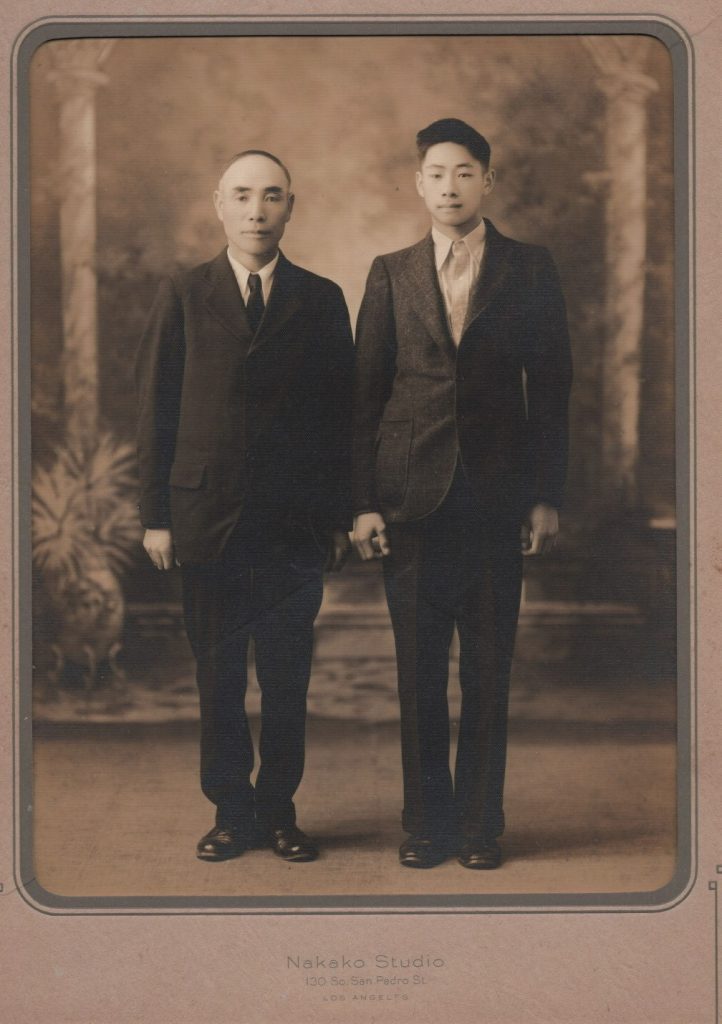
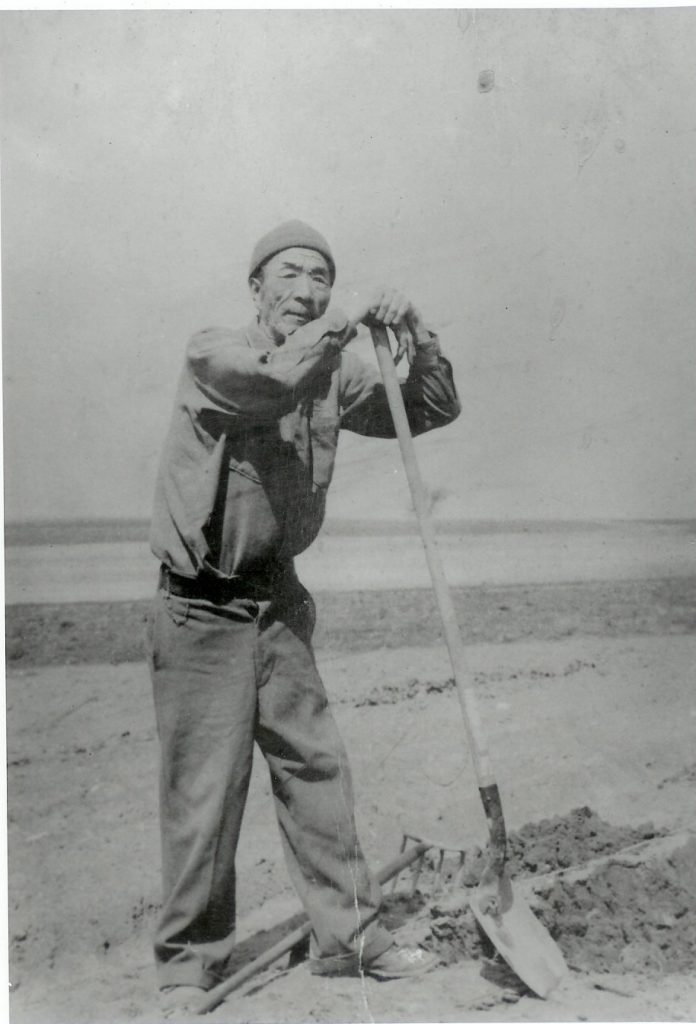
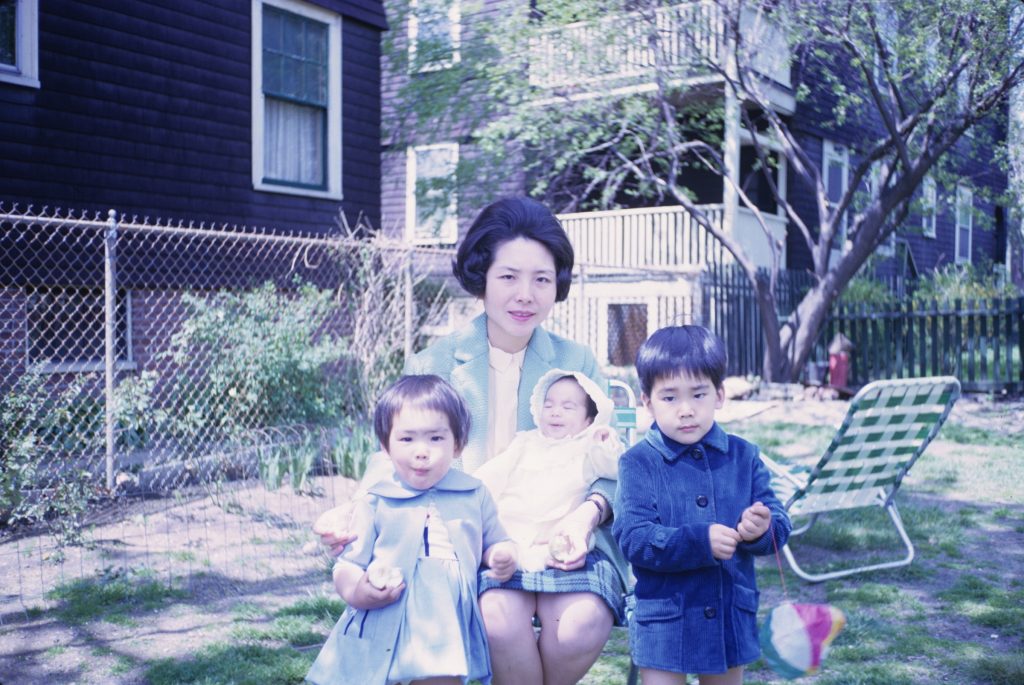
Featured Presenters
Reflecting the diversity of our presentation themes, JASP Speakers range from next generation young leaders to senior executives, and Nikkei Sansei and Yonsei, Shin Issei, Shin Nisei, Bi-Racial/Multi-Ethnic Nikkei, from both the private and non-profit sectors, based in Tokyo, Okinawa, Hawai’i, and the Mainland U.S.
These are some of our featured speakers.
Nate Gyotoku (Honolulu, Hawaii) – Just Another Plantation Kid (in English)
Nate Gyotoku
“Just Another Plantation Kid”
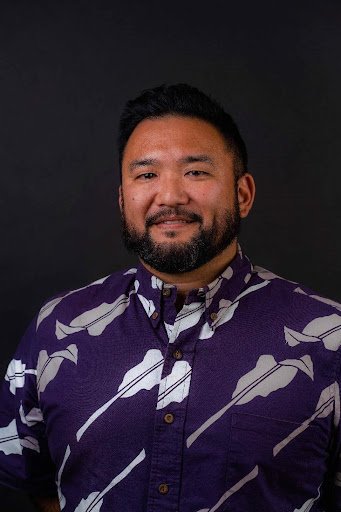
Born and raised in Hawai’i, Nate Gyotoku embodies both the Aloha spirit and Japanese American values. He is a yonsei descendant of Japanese great grandparents who immigrated to Hawai’i as part of the original wave of “Gannen Mono” (first year of Japan’s Meiji era in 1868) and picture brides and grandparents part of the American WWII military efforts. Listen to Nate’s story to learn the fascinating history behind Japanese immigration to Hawai’i and his “ikigai” of making Hawai’i a better place by sharing Japanese American culture.
Presentation Outline and Highlights
- The “Ikigai” of a Yonsei from Hawai’i
- From entrepreneur to volunteer – the joys of the non-profit sector
- Sharing Japanese American history and culture through education and arts at JCCH
- Discovering my ikigai to make Hawai’i a better place
- History of Japanese Immigration and Japanese Americans in Hawaii
- The Gannen mono: first Japanese immigrants to the Kingdom of Hawaii
- What is a “picture bride”? His great grandparents’ immigration from Japan in 1907
- Issei discriminated and face tough plantation conditions as Hawaii is annexed
- The Immigration Act of 1924, ongoing list of targeted Japanese leaders, and the immediate incarceration after Pearl Harbor – the long history of anti-Japanese sentiment
- Hawaii Today and Tomorrow
- Many Japanese Americans taking leadership roles, in business and government
- Tourism/Industrialization threatening native Hawai’i lands – need to protect and conserve
Speaker Biography
Nate Gyotoku is a yonsei born and raised in Hawai’i. He serves as the President & Executive Director of Japanese Cultural Center of Hawaiʻi, overseeing all operations for the state. The Japanese Cultural Center of Hawaiʻi’s (JCCH) mission is to be a vibrant resource, strengthening our diverse community by educating present and future generations in the evolving Japanese American experience in Hawai‘i. Prior to his current role, Nate served in leadership roles for organizations that empower young people and value sustainability and conservation. He also has extensive experience in the technology, food manufacturing, and facilities management industries.
Nate is a graduate of the University of Nevada, Las Vegas, where he earned a Bachelor of Arts degree in English Literature and is also a graduate of Waiakea High School on the island of Hawaii. He is also an alumnus of the U.S.-Japan Council’s Emerging Leaders Program.
Kelly Nuibe (Tokyo, Japan) – From a Rock: Stepping Beyond the Comfort Zone of Hawaii (in English)
Kelly Nuibe
“From a Rock: Stepping Beyond the Comfort Zone of Hawaii”
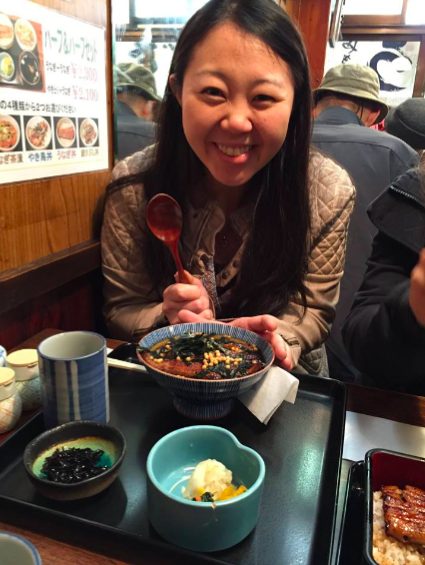
As a yonsei, born and raised in Hawaii, Kelly Nuibe was always curious to learn more about the world and her family’s roots in Japan.
Join Kelly on her journey to stepping beyond the comfort zone of Hawaii and discovering new outlooks on life.
Presentation Outline and Highlights
- Introduction and background
- Growing up in Hawaii
- ‘Nuibe’ and the Nuibe Family Background
- The ‘Isobe’ Family Background
- Leaving Hawaii
- Facing Racial Discrimination
- The Value of the Exchange Student Experience
- The Japan Exchange and Teaching (JET) Programme
- Branching Out
- A Chance Encounter
- Re-discovering Family in Japan
- Extended Family
- Renewed Goals and Current Career
- Work at Temple University Japan
- A New Outlook
Speaker Biography
Kelly Nuibe is a yonsei born and raised in Hawaii. She followed her dreams to Japan to find her family’s roots while working on the Japan Exchange and Teaching (JET) Program. During her Japanese language studies, Kelly completed an internship at The Maureen and Mike Mansfield Foundation in Tokyo. In 2019, she was selected as a member of the USJC Emerging Leaders Program. She holds a B.A. in Asian Studies from Occidental College.
Kelly is the Assistant Director of Overseas Admissions at Temple University, Japan Campus (TUJ) in Tokyo. She is responsible for international student recruitment in Europe, the Philippines, Korea, and parts of North America. When she is not traveling for work, she is on stage performing hula in Japan.
George Miller (Tokyo, Japan) – Appreciating the Differences (in English)
George Miller
“Appreciating the Differences”
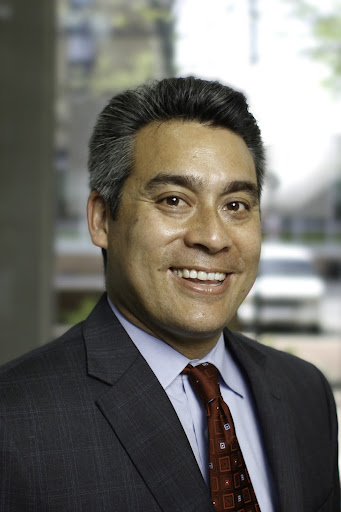
George Miller is a photojournalist, an academic administrator, a professor, a baseball player, an American, and a Japanese all-in-one. The child of a father from a conservative white family and a mother from a traditional Japanese household, George recounts his experiences of “in-betweenness” and never fitting in whether at home or in the community. Join journalist George as he illustrates the world he’s seen as a multicultural individual from “busing” and segregation in White America to traditional, old port town Sasebo in rural Japan.
Presentation Outline and Highlights
- Introduction and Background
- Photojournalism
- Interests and Passions
- Transitioning from Journalism to Education
- Growing up half-Japanese and half-American
- Sasebo and Japanese Family History
- Family History in America
- Early Schooling and Bussing
- Racism and Desegregation in America
- Diversity in Media
- Jump: A magazine highlighting diversity in Philadelphia
- Mass Media and the perpetuation of stereotypes
- Finding your passion and standing out in Japan
Speaker Biography
George Miller was the associate dean for academic affairs at Temple University, Japan Campus from 2018 through 2021. He has taught journalism classes at Temple since 2006. He is currently researching the relationships between universities and their surrounding residential communities, and raising a newborn.
Previously, he was a photojournalist, features writer and crime reporter for the Philadelphia Daily News, from 1994 until 2006. He published JUMP, a printed magazine that covered the Philadelphia music scene, from 2010 until 2018. His words and images have appeared in publications around the world. He is a graduate of Loyola University of Maryland and the Graduate School of Journalism at Columbia University. He completed a second master’s degree at the University of Pennsylvania and is currently a doctoral candidate at Wilmington University.
George was raised in Wilmington, Delaware but has been traveling to Japan since he was an infant, as half of his family is Japanese, from the city of Sasebo in Nagasaki-ken.
Kaoru Utada (Tokyo, Japan) – Cross-cultural Communication through the Lens of a Nikkei Shin-Nisei (in English)
Kaoru Utada
“Cross-cultural Communication through the Lens of a Nikkei Shin-Nisei”
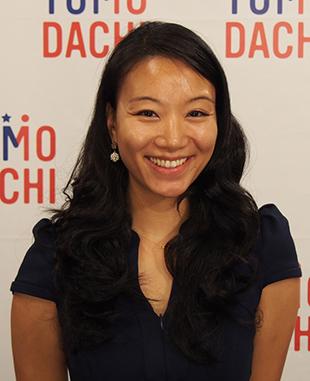
“Shin-Nisei Reverse Import New Yorker” Kaoru Utada has a unique career path – originally a director in the news industry and now a Director of Programs & Partnerships at the U.S.-Japan Council. Throughout it all, one thing is consistent: her role as a bridge between the U.S. and Japan. Tune into her talk to learn what her early life was like as a Nikkei Shin-Nisei born and raised in 80’s New York, the 3.11 disaster that pivoted her career, and how she creates a network of “deru kui” (出る杭) or nails that stick out to create change.
Presentation Outline and Highlights
- Kaoru’s career
- To stand on a giant’s shoulders in USJC
- TOMODACHI: civic engagement and entrepreneurial mindset in a post-3.11 Japan
- What does “Shin-Nisei Reverse Import New Yorker” mean?
- Childhood in New York: “I was the only Asian kid in class”
- Getting the “What are you?” and “Where are you from?” as a perpetual foreigner
- Learnings from Father: Having empathy and accepting differences in daily life
- Learnings from Mother: The importance of community in making changes
- Confusion between U.S. and Japanese culture: Basis to appreciate different cultures
- The bridge between the U.S. and Japan
- A reporter, director, and producer – a bridge of information in the news industry
- 3.11 and encounter with people in Tohoku: Decision to move to Japan
- Facing stereotypes in Japan: Steps to understand differences
- Being a nail that sticks out – What is a 出る杭ネットワーク?
Speaker Biography
Kaoru Utada is a Japanese American Shin-Nisei (new second generation) “reverse import” originally from New York with ancestral roots in Yamanashi and Tokyo. She is the Director of Programs & Partnerships at the U.S.-Japan Council (Japan). Joining the team in 2012, she took on various roles in TOMODACHI from developing and managing programs, creating a new wing for alumni engagement, and providing opportunities for students and young professionals to be empowered.
Prior to joining USJC, Kaoru worked in the broadcast news industry where she directed and produced news segments at both American and Japanese television networks (ABC News, Fuji TV, and NHK). Kaoru also founded the Hoshuko Alumni Association, Inc. (HAA, Inc.) that unifies young bilingual bicultural Japanese Americans who have been educated in the Japanese Weekend School system. She is passionate about helping others and disaster response and was motivated to move to Japan after the 2011 Great East Japan Earthquake. Kaoru is an alumna of Skidmore College with a BA in Asian Studies and Psychology.
Russell Saito (Tokyo, Japan) – Developing an Innovative Mindset for Career Success in Japan (in English)
Russell Saito
“Developing an Innovative Mindset for Career Success in Japan”
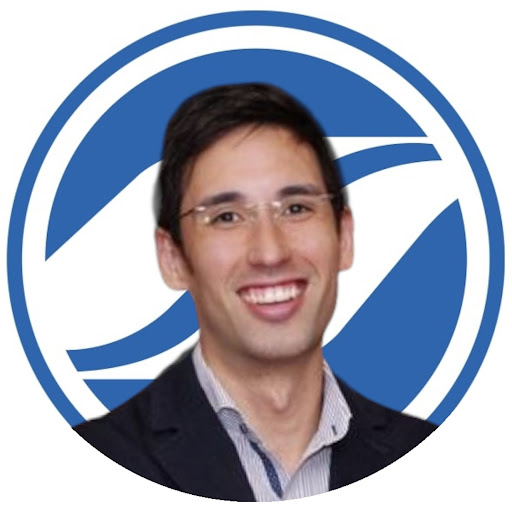
Join “Hapa” Japanese American Russell Saito from Hawaii on his career journey, beginning from his transformative study abroad to successful business executive, and through his many ventures (and adventures) outside of his comfort zone. Through these experiences, Russell illustrates how expanding personal horizons and networking can lead to greater professional success. Concretely, he provides students with an opportunity to evaluate and refine their own career goals, and suggests specific, innovative methods and resources to encounter more opportunities.
Presentation Outline and Highlights
- Pursuing “Culture Shock” Through Study Abroad
- Born and raised in Kona, Hawaii to a Japanese American father and Caucasian mother
- Japan culture shocks: formality of uniforms, strictness of social rules, age hierarchy.
- A “Mini-Ambassador” for Hawaii and America, starting an exchange program at a Japanese university
- US culture shock at a US Mainland university and search for a place of belonging.
- Japan Career Journey – Seeking Adventure
- Mr. “Japan Salaryman”
- The Value of “Volunteerism”
- Non-Profit Work to Aid Post-March 2011 Tohoku Recovery – Lower pay, but….
- Career switch to successful finance and global entrepreneurship
- What is Your Dream?
- Evaluate and Refine Your Goals
- Concrete Career Advice and Action Items
Originally from Kona on the “Big Island” of Hawaii, Russell is a multi-cultural business executive with over 15 years of professional experience in Japan. He currently leads Chia Network Inc.’s initiatives in Asia. An expert in financial technology and corporate innovation, he also serves as an advisor at Nikkei Inc. (a business news outlet). His previous positions include Vice-President at Trust Capital, the largest Mezzanine finance fund in Japan. Russell has also held leadership positions with global technology corporations and has extensive cross-sector experience working with governments and nonprofits.
He currently serves as Vice-Chair of the UC Berkeley Club of Japan and has been a long-standing member of the Rotary Club and the U.S. – Japan Council.
Kumiko Hidaka (Tokyo, Japan) – Japanese Identity in the 21st Century (in English)
Kumiko Hidaka
“Japanese Identity in the 21st Century”
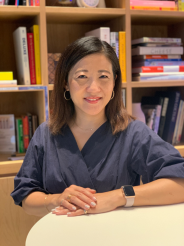
What exactly is a Japanese identity? What is it like to be a third culture kid? Shin-Issei Kumiko Hidaka takes the audience through her identity-searching journey as a third culture kid to answer those pressing questions.
Kumiko breaks barriers by illustrating that one’s identity should not be limited by the stereotypes attached to nationality but that rather, it could be in diverse forms such as her bicultural identity that helped her bridge US and Japan in business.
Presentation Outline and Highlights
- Japanese nationality is not something of singular linearity
- Born in Japan, raised in the Philippines and the US
- In Japan, noticed her differences with others and made efforts to conform
- When she came to California, was reminded of her Japanese identity but realized that identity isn’t tied to nationality and to embrace her bicultural identity
- Studying abroad in France: questioning her Japanese identity
- Noticed that people associate your race with one culture or identity
- Being the “Third Culture Kid”: the identity crisis boils up while working in Japan
- How she felt like (a Japanese person) vs how she was perceived (a non-Japanese person)
- Received many remarks that commented on her American-ness (or lack thereof)
- Felt rejected of her Japanese identity and had to work hard to prove she was Japanese
- Bridging Japan and the outside world through communications
- Her career is at the intersection of culture, people, and technology
- When working for Nintendo in the US, helped Japanese colleagues know the US market
- When working for Facebook in Japan, helped the American company grow in Japan
- Embracing her duality helped her contribute to global businesses
- The Japanese Identity: An ever-evolving concept
- Japan becoming more diverse: more foreigners and international population
- The move away from singular cultural identity
- We must re-examine our unconscious biases so that we can address them
Speaker Biography
Kumiko Hidaka graduated from the University of California, San Diego with BAs in Communications and Japanese Studies with a minor in French Literature. She began her career working on some of the world’s most iconic brands like Pixar, Nike, and Nintendo while building out her international brand, marketing, and communications expertise. She is currently Director of Communications, Product & Technology, at Netflix Inc. Before this, she was VP of Public Affairs, WeWork Japan, where she oversaw the company’s communication and government affairs efforts in Japan. Previously, she was Head of Communications, Digital Entertainment, at Amazon Japan, where she led the PR team for their digital entertainment businesses like Amazon Prime Video and Amazon Music. Prior to that, she spent over six years at Meta in their headquarters and Tokyo offices, where she first led the communications strategy for their Asia market entry and last served as the Head of Communications, Japan, responsible for communications across all their family of apps including Facebook, Instagram, Messenger, and Oculus.
Mao Tolliver (Michigan, USA) – Searching for Cultural Identity (in English)
Mao Tolliver
“Searching for Cultural Identity”
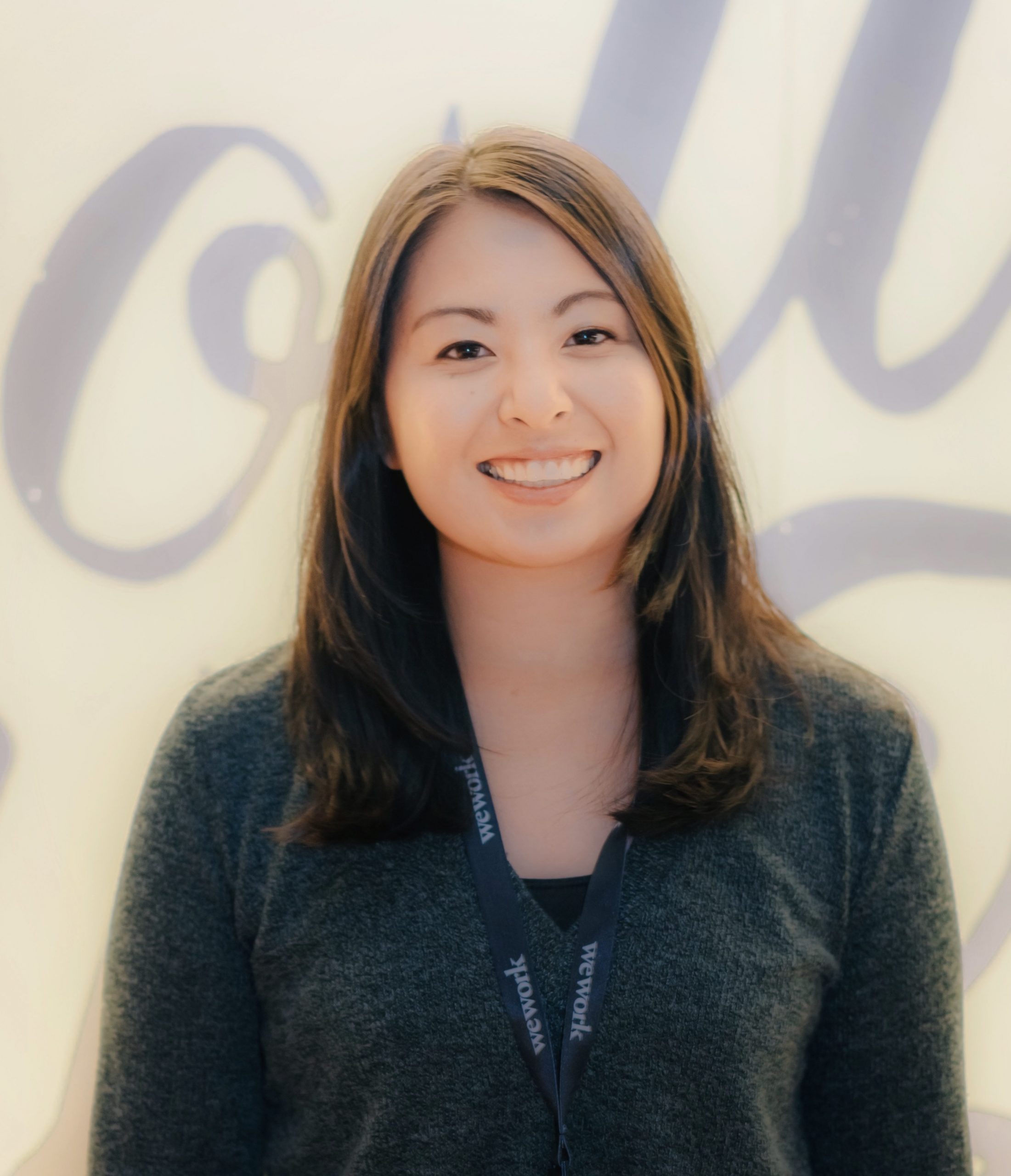
“Shin Issei” Mao Tolliver tells her inspirational tale of grappling with her complex identity as both a post-war, Japanese minority immigrant from Osaka, Japan to the US in rural Michigan, as well as an Americanized kikoku shijo Japan returnee. To bridge the disconnect between who she was and who she imagined she should be, she chose to immerse herself in culturally challenging situations to confront and define her identity. Mao shares how she now embraces her dual-identity, helping to connect Western and Japanese culture and serving as a US-Japan bridge.
Presentation Outline and Highlights
- A Japanese Immigrant to the US
- At age 4, moved to a small, predominantly white, rural town in Michigan, with her family.
- Challenges of attending the local school and living as the sole Japanese/Asian student.
- Constant reminders of her differences and “otherness.”
- Return “Home” to Japan?
- Returned as a teenager to Osaka, expecting to feel at home.
- Yet strangely felt out of place as the “American kid.”
- Turning Point – Back Again to the US
- Inspiration to become part of a diverse international community after attending a summer high school program in the US.
- Befriended many Japanese and Asian peers while studying at a US university.
- Wanted to embrace her Japanese identity but lacked authentic knowledge and experience about Japanese culture – making her a reluctant “Representative of Japan.”
- Towards a Solution: A Dual Identity, US-Japan “Bridge”
- Worked at a traditional theater company (Kyogen, Nihon-buyo, Koten-bungaku)
- Initially lacked proper knowledge of keigo and other Japanese cultural manners when speaking to sempai and shisho, but eventually gained Japanese cultural understanding.
- Bilingualism and international perspective opened doors for work opportunities
- Life today as both Japanese and American
Speaker Biography
Mao was born in Osaka and spent her childhood years in both the US and Japan. She was one of the first local employees for Booking.com Japan, where she supported their localization and expansion in the Japanese market. In 2018, she joined WeWork Japan to open the first WeWork building in Fukuoka and led multiple teams of +30 young professionals as the Director of Community for West Japan.
She currently resides in Ann Arbor, Michigan with her husband and works at Kintone, a subsidiary of Cybozu Corporation, to grow the Japan-based technology business in the US.
Steve Sakanashi (Tokyo) – The Heart of a Foreigner: 99 Years away from Home (in English)
Steve Sakanashi
“The Heart of a Foreigner: 99 Years away from Home”
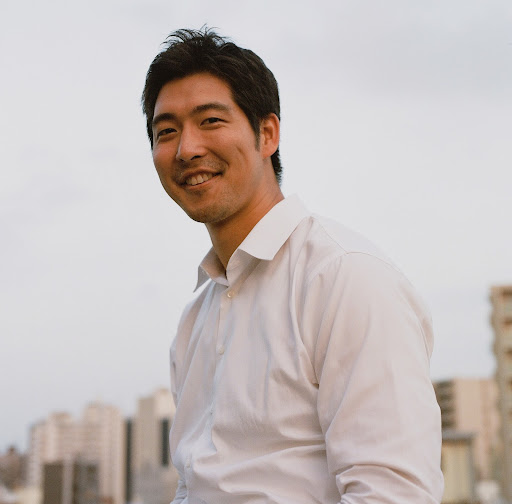
Steve Sakanashi’s great grandfather, Kenzo Sakanashi, is not in the incarceration camp records… Instead, he was incarcerated in a special camp by the FBI on suspicion of being a Japanese spy. Join Steve as he unlocks Kenzo’s mystery by unveiling government papers from the WWII period and revealing the backstory of Japanese-American incarceration. Listen to the enthralling story of Kenzo’s children’s sacrifice to serve in the military of a nation that treated their father like an animal and the 99-year-long Sakanashi journey to return to Japan.
Presentation Outline and Highlights
- Introduction and Background
- What is a Japanese-American?
- Steve’s Great-Grandfather, Kenzo Sakanashi
- Moving from Kumamoto to California
- An Archaeological Unveiling of the Sakanashi Family History
- Kenzo, a prisoner of the FBI Incarceration Camp
- Revealing the letters & telegrams between the Kenzo, his wife and his children
- Kenzo’s sons’ commitment to the U.S. military
- Call to Action/Reflections
- The 99-year-long return of “coming back” to Japan
- Steve’s identity and life in Japan as a “foreigner”
- Hope for a more inclusive, welcoming society
Speaker Biography
Steve Sakanashi is a yonsei and was born and raised in Los Angeles as a dual citizen of an American father and Japanese mother. Steve spent 6 years working in Seattle before moving to Tokyo in 2014. An active member of the U.S.-Japan Council, Steve is passionate about using his experiences and network to bring his two homes of America and Japan closer together.
Steve is currently the Director of Marketing & Global Strategy at Matchbox Technologies, a national pioneer at the intersection of Lawson convenience stores, HR technology, and on-demand staffing. Previously, Steve founded Sekai Creator, a startup incubator for Japanese and global university students in Japan. He has taught entrepreneurship and innovation at all stages of Japanese society, including posts as a public secondary school teacher, TEDx speaker, and consultant to the Tokyo Metropolitan Government.
Camryn Sugita (California) – Find Yourself, Find Your Purpose (in English)
Camryn Sugita
“Find Yourself, Find Your Purpose”
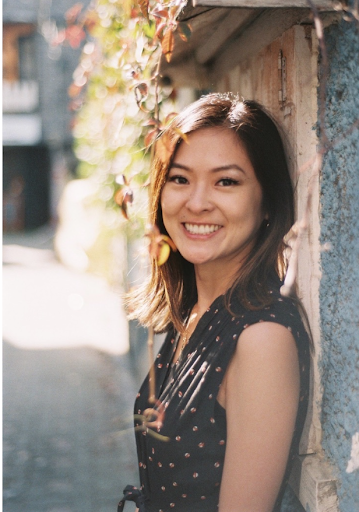
A young Japanese woman becomes pregnant but does not have either a partner or the financial means to raise the baby – what should she do? Yonsei Camryn Sugita opens her talk with this question and explains that the child named “Sora” (sky) was given up for adoption. She then further questions whether the audience knows of anyone that is adopted, what a life of an adopted child is like, and the situation surrounding adoption in Japan. Listen to Camryn’s talk to uncover who Sora is and the life that the adopted child led, and the deep meaning behind Sora’s name that connects all the dots from the talk together.
Presentation Outline and Highlights
- An NHK Documentary Features a Troubled Young Mother
- The young mother becomes pregnant but does not have the means to raise the baby
- The reality of adoption in Japan
- The Child is Adopted
- Parents are survivors of the WWII incarceration camps
- Participating in cultural Japanese activities and being surrounded by many Japanese Americans
- Studying abroad in Tokyo and visiting Japan for the first time
- The Reunion
- Revelation at the Nisei Week annual festival
- A strange Instagram message from a stranger
Speaker Biography
Camryn Sugita-Lee grew up in California, and stayed connected to her Japanese roots through traditional Japanese dance. Camryn went on to study International Studies and International Business at American University in Washington, D.C. and spent her junior year studying abroad at Waseda University in Tokyo. After graduation, she worked at the Japanese American National Museum in Los Angeles, California.
She currently works in Inclusion & Diversity at Mitsubishi UFJ Financial Group in San Francisco.
Allan Watanabe (Tokyo) – The Advantages of Diversity & Inclusion in Business (in English)
Allan Watanabe
“The Advantages of Diversity & Inclusion in Business”
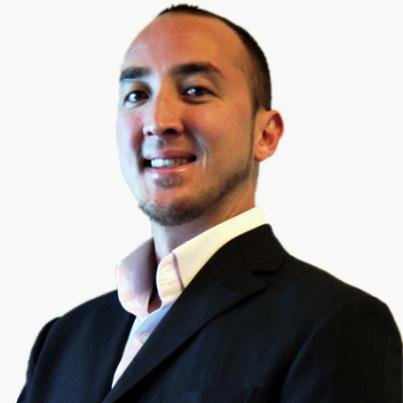
Being seen as a foreigner — for his entire life. Shin-Nisei Allan Watanabe illustrates that being seen as a foreigner can be a disadvantage until you turn that into a vantage point. His experiences since childhood of being treated as a foreigner brewed his entrepreneurial spirit to venture into new businesses and countries. Listen to how Allan turned his “foreign mentality” into his advantage to run his businesses by venturing into new, uncharted territories.
Presentation Outline and Highlights
- “Blondie” — Born and raised as a Shin-Nisei in LA
- Felt 100% Asian: Went to Japanese school and also grew up in a diverse environment
- His mother’s traditional bento boxes and him being connected to his Japanese identity
- His family was also diverse in terms of occupation and race
- Entrepreneurial Journey in Japan
- Post-college, he wanted to explore career options — packed a backpack to fly into Japan
- His 外人 looks despite his fluent Japanese led to being seen as a foreigner in Japan
- Came with advantages and disadvantages
- Venturing into the IT field for his career
- Foreign mentality helped him venture into a new field
- Founded his consulting company to help US companies enter the Japanese market
- The business initially went well until it ran out of cash flow
- The toughest time in his life and learned that balance and focus are key
- Finding a New Path in Bangladesh
- Got many talented IT engineers in Bangladesh and started a new company in 2018
- Still seen as a foreigner here too but he is using that mentality in positive ways
Speaker Biography
Allan Watanabe is originally from Los Angeles, California and currently lives in Tokyo, Japan. He is grateful to have met his perpetually supportive wife and feels blessed for his two vibrant children. His parents living in Raleigh, NC are originally from Hokkaido and Yokohama and are currently wondering when/if their son will return to the US.
Allan Watanabe is the Founder and CEO of PIPELINE, a cybersecurity intelligence company helping to protect businesses in JAPAC. With over 20 years of experience working in the IT industry, he is currently working with Telecom Carriers, Government entities, and Universities across Asia to help protect their networks from growing cyber-attacks. He has held roles in both technical and business functions such as technical support, data architecture, technical sales, country manager, and considers himself a passionate multi-preneur.
Anna Nagamine (Okinawa) – To Future Leaders: My Journey of Not Belonging and Self-Acceptance (in English)
Anna Nagamine
“To Future Leaders: My Journey of Not Belonging and Self-Acceptance”
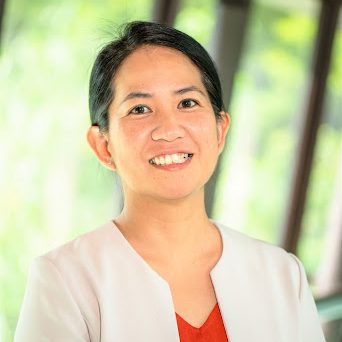
Not being Japanese enough nor American enough… Daughter of Shin-Isseis Anna Nagamine shares her struggle to “fit in” during her journey back and forth between her Japanese and American identities. What is your label and how do you fit in? Tune in to learn where Anna discovered her community of individuals with similarly diverse identities and how she learned to embrace her multifaceted identity.
Presentation Outline and Highlights
- Family History of Immigration
- Shin Issei parents who emigrated to California
- Both sides of her family immigrated to the US and started families there
- Grew up in a Japanese-Okinawan family but with American influences
- Difference from siblings: they grew up in varying circumstances which led to varying relationships with Japan and America
- A Journey of Not Belonging
- The struggle between being “not Japanese enough” in Japan and “the Asian” in America
- Tried to fit in wherever she was yet no single label seemed to capture her complete self
- Turning point: becoming part of a multidisciplinary faculty at Chuo University
- Exploration beyond her comfort zone: lived in Uganda for 2 years
- Paved the way to her job today: working with a diverse community at OIST
- Call to Action: Why Care about Diversity, Inclusion, and a Culture of Belonging?
- Japan is changing: foreign tourists and residents are increasing
- The journey of being uncomfortable made her life richer
Speaker Biography
Anna Nagamine was born and raised in Okinawa and educated in both American and Japanese schools. Her parents emigrated and started a family in the US, but moved back to Okinawa before she was born. Anna is the Manager of the Business Development Section at the Technology Development and Innovation Center (TDIC) at the Okinawa Institute of Science and Technology Graduate University (OIST). Anna’s work involves developing industry partnerships, supporting entrepreneurship, and incubating startups in the region. She was an integral part of the team that established the first OIST startup (biotechnology) in 2014. Her current team manages an incubator in Okinawa and the first international startup accelerator program.
Anna graduated from Chuo University, Faculty of Policy Studies, and holds a MA degree from the University of Hawai‘i at Manoa, Asian Studies Program (East-West Center Obuchi Student Scholarship recipient). She was selected for the 2017 TOMODACHI-Mitsui Leadership Program and is currently a participant of the U.S.-Japan Network for the Future Program (The Maureen and Mike Mansfield Foundation). She loves to travel, surf, and be an auntie to her nephews and niece.
Ted Katagi (Tokyo) – Five Generations of Issei (in English)
Ted Katagi
“Five Generations of Issei”
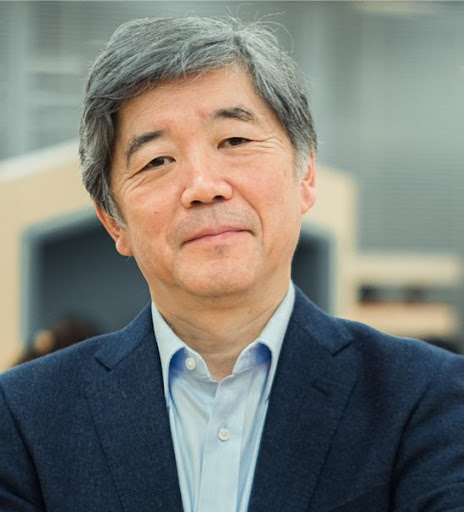
In this highly interactive presentation, Ted Katagi raises thought-provoking questions and provides insightful advice on how to become a globally-minded individual. Based on his own experiences as a Japanese American, he introduces his “HITS” that helps prepare attitude and mindset to understand different cultures: Global Heart, Global Intuition, Global Thinking and Global Story.
Tune in to understand what he means by him being a “fifth-generation issei” or the fifth returnee to Japan from the US in his family line.
Presentation Outline and Highlights
- Introduction
- Stories of himself and his daughter: A Nissei American realizing I am not Japanese and then trying to understand what is the key to success in learning a different culture?
- “HITS” framework to understand a different culture
- Global Heart: Be sincere, curious, confidence, resilient, and community builders
- Global Intuition: Seek to understand others on personal, group, and cultural levels
- Global Thinking: Build a common framework for understanding
- Global Story: Tell your story and reveal your authentic self to connect with others
- The HITS framework helped a Japanese Middle School student with very little English skills develop her story and win a global competition in Ireland.
- Global Story Exercise: Share your own, unique story
- How would you describe yourself to a person from a different country?
- Attitude, mindset, and courage are the keys to be globally minded
Speaker Biography
Ted Katagi is founder and CEO of Kenja. Kenja provides an enterprise software platform for larger global organizations like NTT, Randstad, and the United Nations.
Prior to Kenja, he held senior leadership roles, including Senior Managing Director of Fidelity Investments and Chief Marketing Officer of Vodafone Japan, Global Director of Commercial Strategy of Vodafone Group, and Executive Vice President of Japan Telecom.
He is a well-sought after speaker in Tokyo and also is a professor at the NUCB Graduate School of Business. He earned his MBA at Harvard Business School and his bachelor’s degree at UC Berkeley.
Roy Tomizawa (Tokyo) – Honored by the Emperor, Hired by the US Navy: How a Japanese Issei Navigated the Turbulent Waves of Early 20th Century America (in English)
Roy Tomizawa
“Honored by the Emperor, Hired by the U.S. Navy:
How a Japanese Issei Navigated the Turbulent Waves of Early 20th Century America”
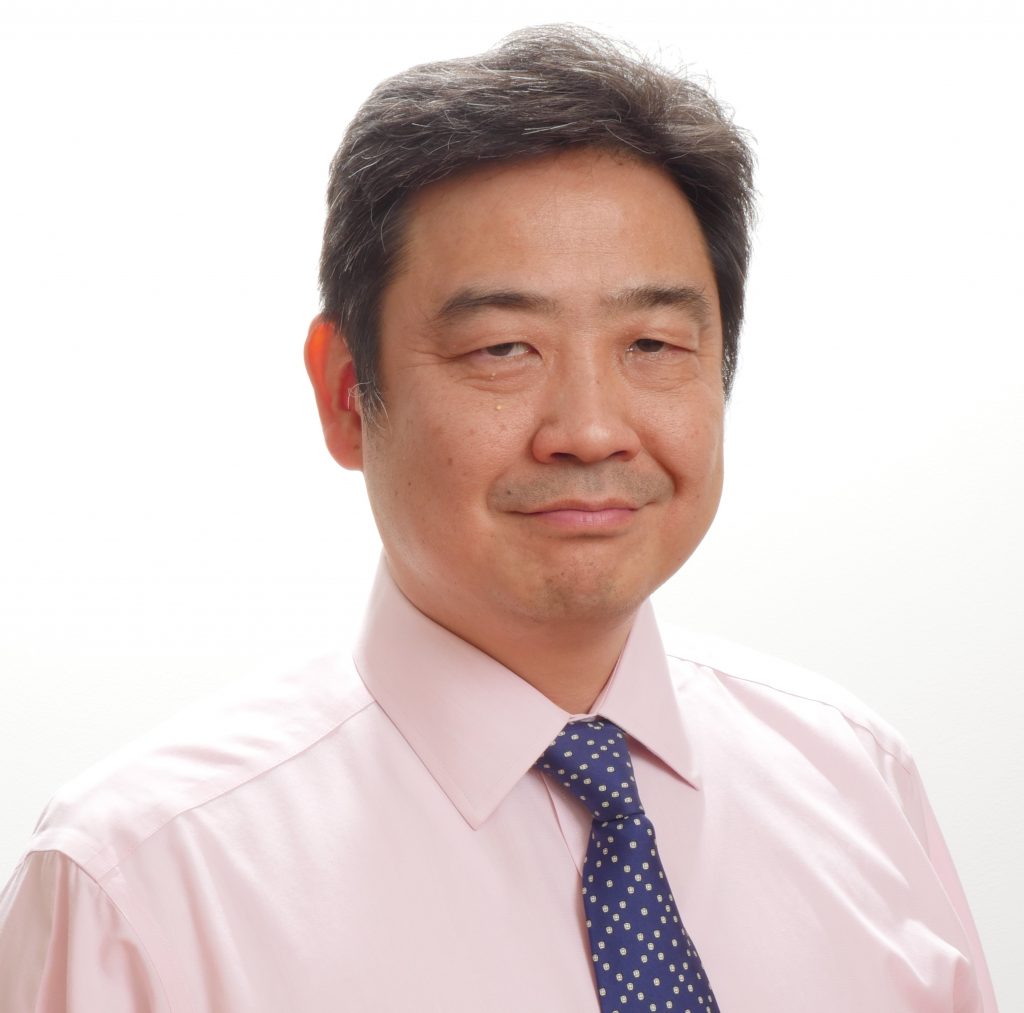
This is not a story about incarceration or racial discrimination. It is a story of an extraordinary immigrant from Fukushima that highlights the great trends of the time at the turn of the century and through World War II. Nikkei Sansei Roy Tomizawa’s grandfather Kiyoshi immigrated to the U.S. and achieved many things: Pre-war establishment of San Francisco’s Japanese YMCA, serving for America as a Japanese teacher, and post-war work helping Japanese immigrants naturalize to be American citizens. Tune in to hear about the life of a man who ventured from one world to another and lived a quiet life of conviction that impacted the lives of hundreds, if not tens of thousands over the decades after his passing.
Presentation Outline and Highlights
- A Sansei raised in New York: visiting the Tomizawa family sites
- His father was a journalist as well
2. Historical background of the Japan-U.S. immigration in early 20th century
- Primogeniture and second sons’ ambitions of becoming the “men of the world”
- Family background of Issei grandfather Kiyoshi Tomizawa, also a second son
- Impact of globalization, technology and social and health trends on increased international exchange
3. Kiyoshi’s immigration to the U.S.
- Kiyoshi’s seminal encounter with John R. Mott, leader of YMCA, after being baptized in Japan
- Kiyoshi’s arrival in the United States in 1903
- Kiyoshi and Fumi Tomizawa’s lives in San Francisco’s JapanTown
4. Kiyoshi’s US activities before, during, and after World War II
- Pre-war establishment of San Francisco’s Japanese YMCA during Great Depression and despite anti-Asian/Japanese movement
- Served for America as a Japanese teacher for the U.S. Naval officers in Boulder, CO
- Post-war work to naturalize other Japanese immigrants to be American citizens
Speaker Biography
Roy Tomizawa is originally from New York with over 30 years experience working in Asia. A head of leadership and talent development for MetLife Japan, Roy also co-chairs the Human Resource Management Committee and the Olympic and Sports Business Committee of the American Chamber of Commerce in Japan. As a former print journalist for a local Gannett paper outside Philadelphia, Roy was the lead reporter on a team awarded second prize in investigative journalism by the Pennsylvania Newspaper Publishers Association for coverage on a maximum-security prison in Eastern Pennsylvania. He is the author of: 1964: The Greatest Year in the History of Japan – How the Tokyo Olympics Symbolized Japan’s Miraculous Rise from the Ashes (Lioncrest Publishing, 2019), Start Up and Stay Up in Thailand (Alpha Research, 1997), and Working with the Thais (co-author, White Lotus Books, 1997).
Yumi Clark (Mainland US) – Courageous Journeys, Resilience, and the Joys of Life (in Japanese)
Yumi Clark
“Courageous Journeys, Resilience, and the Joys of Life”
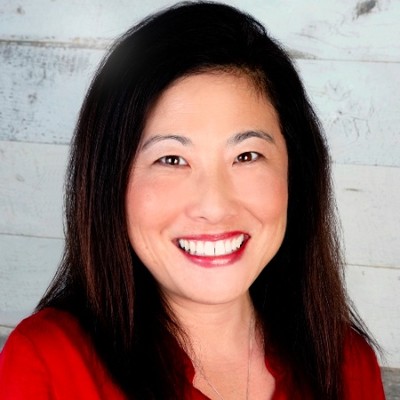
A family immigrated to California from Japan, only to soon be sent to an incarceration camp in Wyoming. The family disperses as the grandmother dies from cancer in camp and the father joins the US Military Intelligence Service after camp. The grandchild of that couple is Yumi Clark.
Tune in to Sansei/Nisei Yumi’s story to discover her upbringing of having two identities and her questioning of “Who am I?”
Presentation Outline and Highlights
- Family Background: Three Generations of Moving Back and Forth between Japan and the US
- The tale of grandparents who immigrated to California
- Grandparents and father sent to an incarceration camp in Heart Mountain, Wyoming
- The family disperses: grandmother dies from cancer in camp and father joins the US Military Intelligence Service after camp
- The Tale of My Life
- Having two identities: growing up in a traditional Japanese family in LA
- The question of “Who am I?” and not knowing what the identity “label” is
- The discovery of “My Voice” while going to school in the two countries
- Message: Do Not Worry About Being the First one – Make Your Own Success
- My journey has not been a straight road – it has involved a lot of curves
- My experiences of being the “first one”
- Take a leap, it’s the experience that gives you perspective
- Learn from your experience and have it help you shape the future
- You can find joy even in the most challenging situations
Speaker Biography
Yumi’s family is originally from Nagasaki and Fukuoka and many of Yumi’s summers were spent in Sasebo, Nagasaki with her extended family. Yumi has a B.A., from the University of California, Berkeley and majored in Rhetoric and East Asian Studies. She also attended Kyushu University where she studied Law and Political Science as a Fukuoka Prefecture Research Fellow. Yumi Clark is currently the Vice President of Integrated Financial Services for Quicken, Inc., a fintech specializing in personal financial management which is akin to a 電子手帳 and 会計ソフトfor consumers. Yumi has built successful technology and financial services ventures in Silicon Valley and Japan, including at Capital One, Adobe, Intuit, eBay, PayPal, Visa, and a number of start-ups. She is currently on the board of freee, Japan’s premier cloud-based accounting software for small and medium-sized businesses.
For her work, Yumi was recognized as one of Fortune Magazine’s 2019 “100 Self-Made Women” in Japan and in 2018, “Most Influential Women in Business” by the San Francisco Business Times.
Yuhka Mera (Tokyo) – Diversity & Inclusion and Omotenashi for All (in English)
Yuhka Mera
“Diversity & Inclusion and Omotenashi for All”
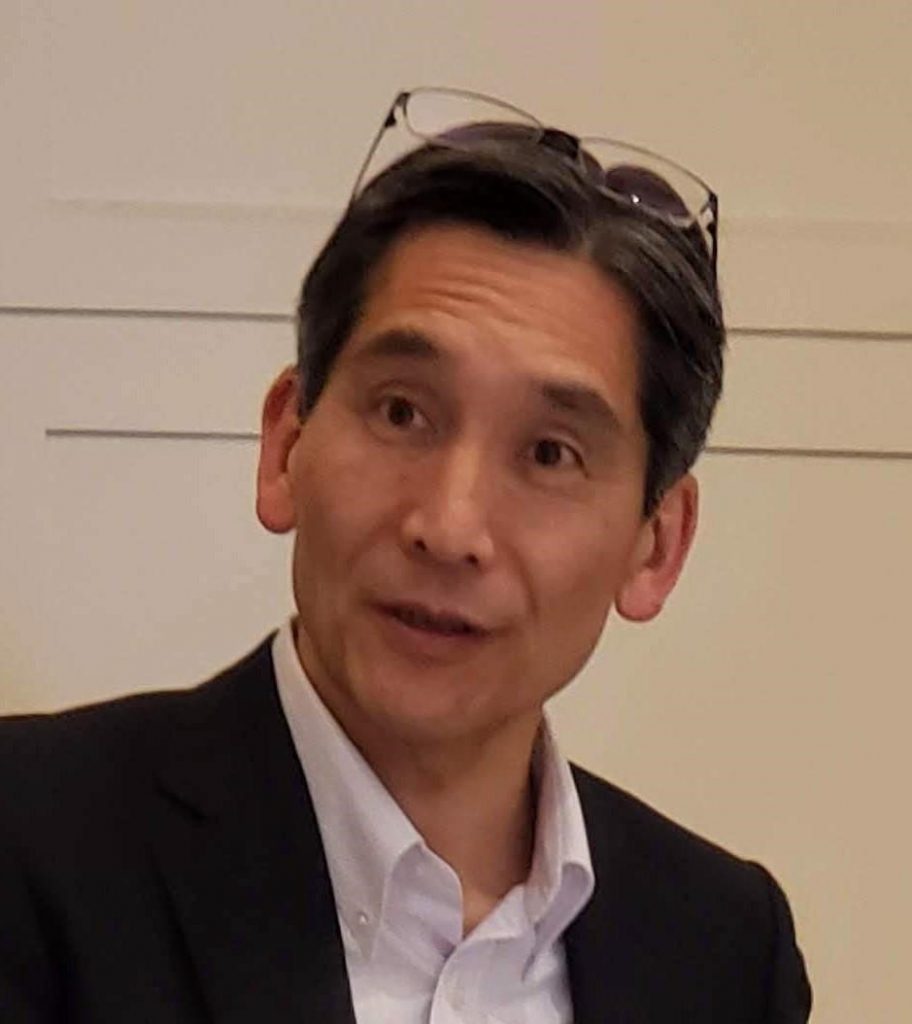
“Shin-Nisei” Yuhka Mera illustrates the importance of why Japanese society should embrace diversity through his own anecdotes of challenges he had faced as a returnee to Japan during his childhood. He explains how Japan’s appreciation of peace and stability can at times negatively work against the promotion of diversity.
Join Yuhka to discover how Japan can incorporate more diversity in the modern global context in order to make advancements to once again become a better industrial leader.
Presentation Outline and Highlights
- Introduction and Background
- Family history
- Attending elementary and middle school in the U.S. and Japan
- Corporate career in the U.S. and Japan
- Why is it difficult to fit in and be accepted in Japan?
- Personal difficulties with acceptance in Japan
- Early schooling – his experience of being seen as the “outlier” in Japan
- Problems in corporate culture
- Unique Japanese customs and traditions
- Japanese weddings
- Japanese ‘Hanko’ system
- Achieving greater diversity and inclusion in Japan – and why it matters
- The Japanese National Rugby Team
- “Omotenashi” for All
- Re-interpreting what it means to be Japanese
- The benefits of increased diversity and inclusion
Speaker Biography
Yuhka Mera was born in the U.S. to Issei parents. He attended public schools in the U.S. & Japan and attended university in Massachusetts. After graduating with a Masters in Microwave filter design he continued to spend time in the US and Japan as a business professional. Yuhka has over 25 years of experience in worldwide business and technology development. His success as the Site Technical Director and Global Technical Film Specialist at 3M Optical Systems Division led to his next role as the Global Design Center Senior Director at Synaptics. During his time at Synaptics, he was instrumental in the development of large size touch screens along with the release of the first touch integrated display driver IC which revolutionized the touch IC market.
Building off of his extensive experience in the United States, Korea, Taiwan and China, he is now working as a consultant and helping companies outside Japan develop and expand their business in Japan and Asia.
Lynn Lethin (Hawai’i) – My Shifting Identities (in English)
Lynn Lethin
“My Shifting Identities”
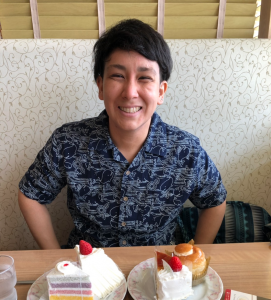
Born and raised in Alaska and Okinawa to an Okinawan mother and a white American father, Lynn Lethin explores their journey through multiple intersecting identities. From being treated differently as a child due to their racially ambiguous appearance to facing challenges receiving support due to sexuality and gender, Lynn’s illustration of growing up in-between identities evokes important topics surrounding uniqueness and discovering oneself. Lynn shares various personal anecdotes and explores intriguing questions such as “Why are there more transgender female entertainers than male transgender entertainers on TV?” Join Lynn to hear about their experiences surrounding queerness in the context of Japan versus the US, and creating a safe space for everyone that come from diverse backgrounds and identities.
Presentation Outline and Highlights
- Being “Different”
- Growing up with a label – the “Japanese kid” in Alaska and the “haafu kid” in Okinawa
- Coming out and the reactions of others
- Importance of Finding a “Community”
- Finding community and comfort on and off-campus during college in Alaska
- Adjusting expectations and searching for community studying abroad in Hokkaido, Japan
- Being Queer in Japan
- Experiencing a different, more conservative and hidden queer culture while working in rural Japan
- Looking beyond local communities to find connections
- Coming out in local communities
- Gatekeeping in the medical community for gender-affirming surgeries
- Being Different is a Strength – What Can You Do?
- What does it mean to “be out”? How to support queer individuals when they come out? What are the key differences between Japan and the US in terms of LGBT lives and experiences?
Speaker Biography
Lynn was born in Anchorage, Alaska to an American father and Okinawan mother and was a dual citizen of the United States and Japan until the age of 22. Lynn is a Japanese Language Teacher at Niu Valley Middle School based in Hawaii where they currently teach Japanese to secondary school students. After completing 5 years on the JET Program from 2011 to 2016, they attended the University of Hawaiʻi at Manoa and graduated with a Master of Arts in Japanese Linguistics with a focus on sociolinguistics. Lynn enjoys teaching students not only the Japanese language, but about the cultures of Japan and Okinawa. Some of Lynn’s hobbies include snowboarding, kyudo and spending time with Otto, the miniature schnauzer.
Jim Minamoto (Tokyo) – Resilience: 七転びハ起き (in English)
Jim Minamoto
“Resilience: 七転び八起き” (Fall Down 7 Times, Get Up 8)
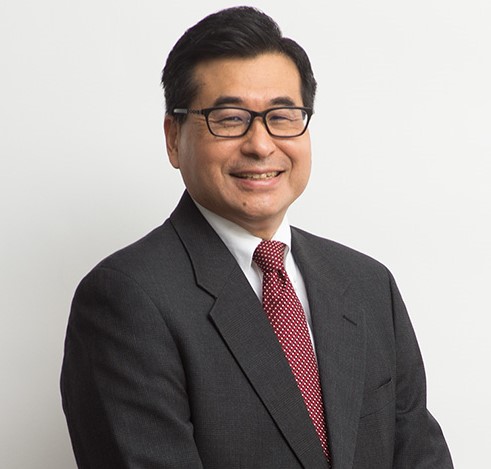
Jim Minamoto tells the inspirational story of a Nisei Japanese-American from a small town in California, who endured more death and tragedy in her life as a teenager than most people experience in two lifetimes. A Hiroshima hibakusha (atomic bomb survivor), she did not let the past determine her future. Rather, she went on to live an ordinary and simple, yet heroic life. A life of quiet resilience. She might have fallen down seven times, but got up eight.
Presentation Outline and Highlights
- Act 1: Tragedy at Home – A Death in the Family
- Growing up in the 1930’s during the US depression
- Attending a segregated school for “non-whites”
- The sudden, early death of a dear family member
- Forced leaving from home and move to Japan, a foreign country
- Act 2: Tragedy Abroad – An American Killed by An American Bomb
- Living in wartime Japan as a “foreign enemy”
- Ordered by the Japanese government to work as a student
- Witnessing the horrors of August 6, 1945
- Death strikes again
- Act 3: Home Again – Resilience
- Farewell to Japan
- Starting a new life alone in New York
- A change of luck
- “Feels like heaven”
- How can I build resiliency in my life?
Speaker Biography
Jim Minamoto is a third generation Japanese American, born and raised in New York. His Japanese Issei grandparents emigrated to the U.S. in the early 1900ʻs. With only a Japanese elementary school education and armed with a strong work ethic, they started a tenant farming business in Southern California, but lost everything when they were forced to relocate to the Rohwer, Arkansas incarceration camp during World War II. Following graduation from law school, Jim worked for several years in New York City before relocating to Japan to take a position as a corporate lawyer at a Japanese law firm based in Tokyo.
He has lived in Japan for over 25 years and has been a member of the U.S. – Japan Council since 2012.
Lynn Miyahira (Hawai’i) – Two Worlds: Cultural Exchange at Home and Abroad (in English)
Lynn Miyahira
“Two Worlds: Cultural Exchange at Home and Abroad”
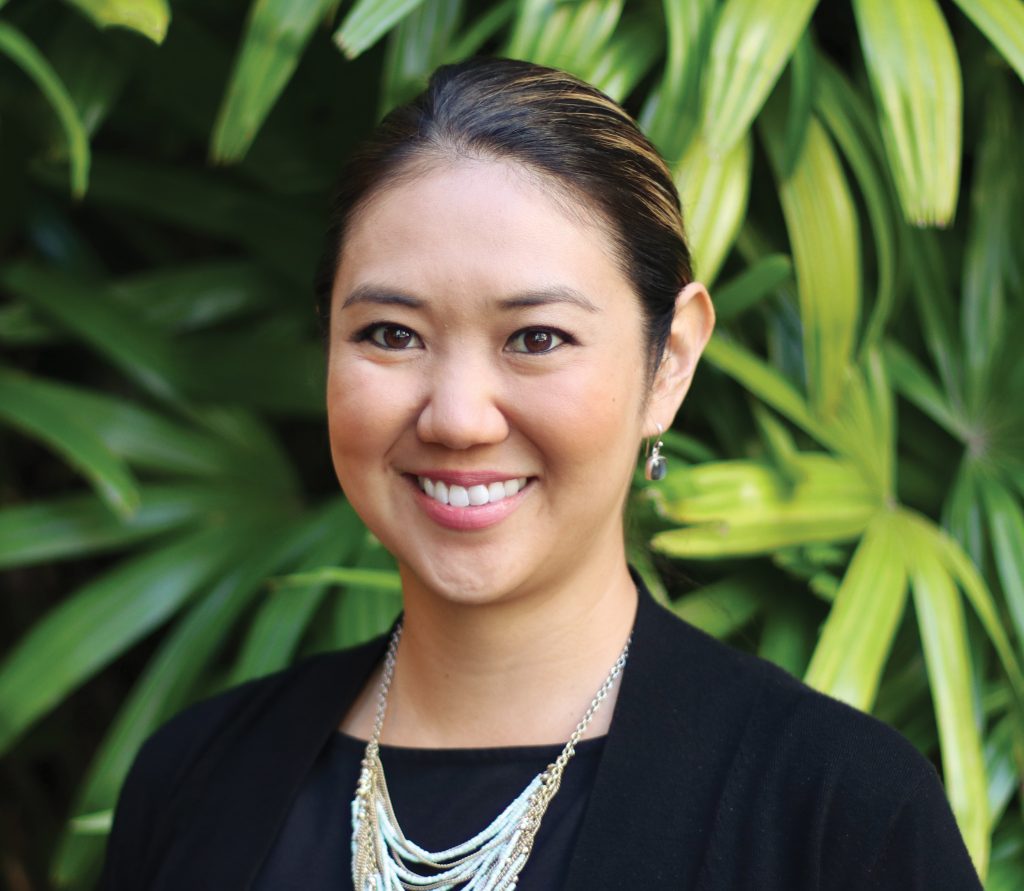
Yonsei Lynn Miyahira has always been immersed in communities where she is reminded of her cultural identity. In Hawaii, she is “Japanese Okinawan”, in the US Mainland, she is “Asian.” And in Japan, she is “Japanese American”. Yet through the depiction of the contrasting lifestyles of her two Japanese American parents, Lynn illustrates that even people of the same cultural identity can have distinct upbringings. Learn how Lynn’s experiences in Hawaii, Oregon, and Japan have shaped the way she grasps the fascinating concept of identity and the importance of understanding your own identity to better promote cultural exchange.
Presentation Outline and Highlights
- Same Japanese Americans, Completely Different Lives
- Lynn’s father (descendant of Okinawan immigrants) was raised in Maui’s sugar plantations compared to mother (descendant of incarceration camp survivors) who grew up in a predominantly white neighborhood in Chicago, Illinois
- Mainland vs Hawaiian Japanese Americans – totally different cultures and histories
- Grew up in Hawaii, a multicultural community, learning Japanese Okinawan culture with a Hawaiian twist
- Moving to the US Mainland – Oregon, a Predominantly White Community
- Being “Asian”, not “Japanese”
- The experience provides the motivation to become a master of her cultural heritage
- Working in Okinawa to Learn the Authentic Heritage
- Different professional manners and cultures – the challenges of assimilating in a Japanese workforce
- Embrace your unique identity and ways of thinking
Speaker Biography
Lynn Miyahira is a yonsei, born and raised in Hawaii with ancestral roots in Okinawa and Izu-Oshima. She is an account director at iQ 360, an integrated communications and marketing firm, where she manages client relationships and specializes in public affairs, business consulting services and integrated marketing campaigns. In 2020, Lynn was the president of the Hawaii United Okinawa Association, a 40,000 member organization whose mission is to promote, perpetuate, and preserve the Okinawan culture in Hawaii.
Lynn received her BA in politics from Willamette University and her MBA from the Shidler College of Business at the University of Hawai’i at Manoa. She is a member of the U.S. Japan-Council’s ELP class of 2014 and also co-chaired the U40 Summit in Hawaii in 2019.
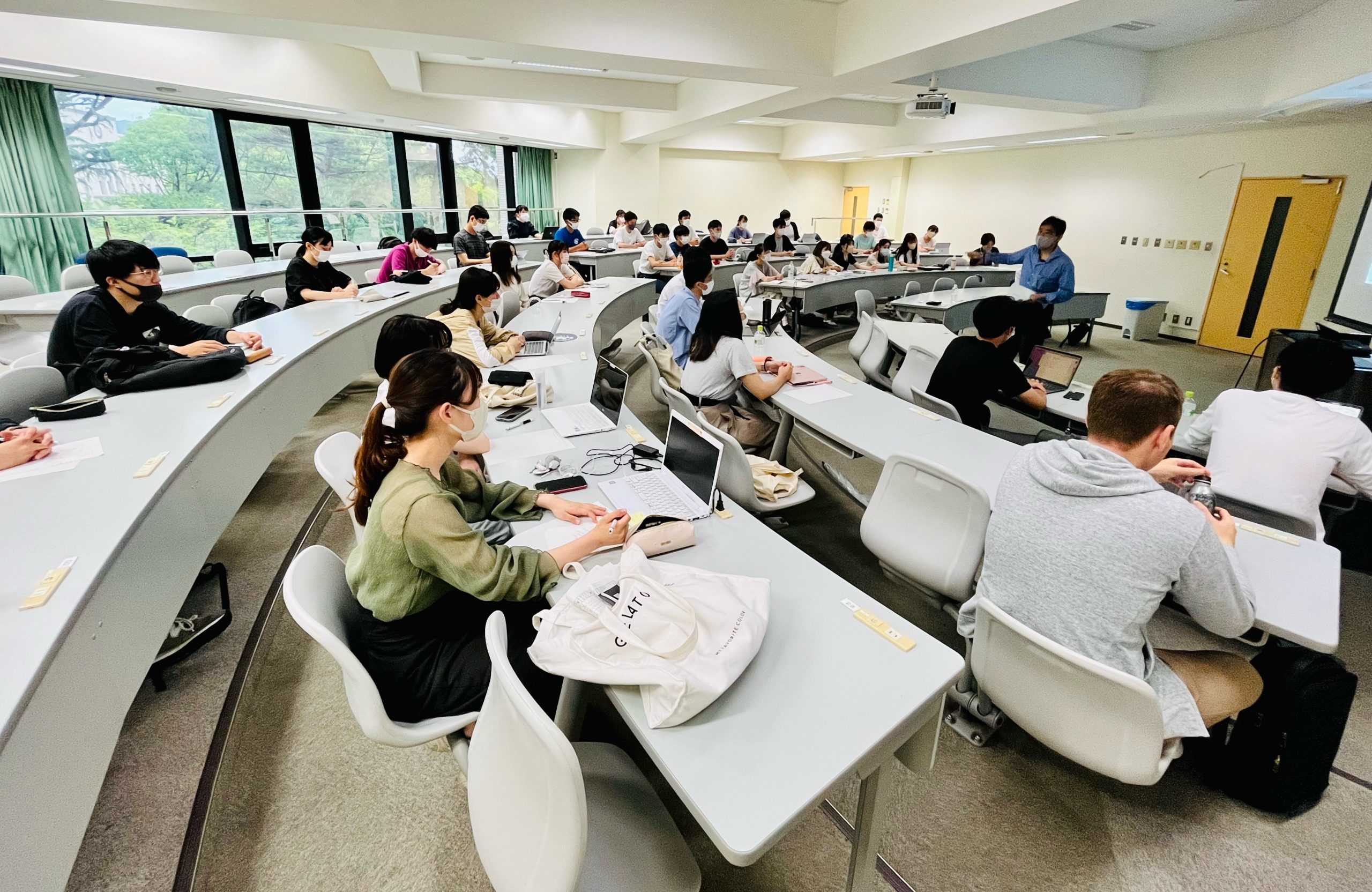
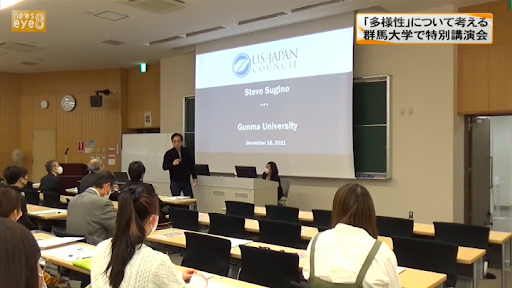
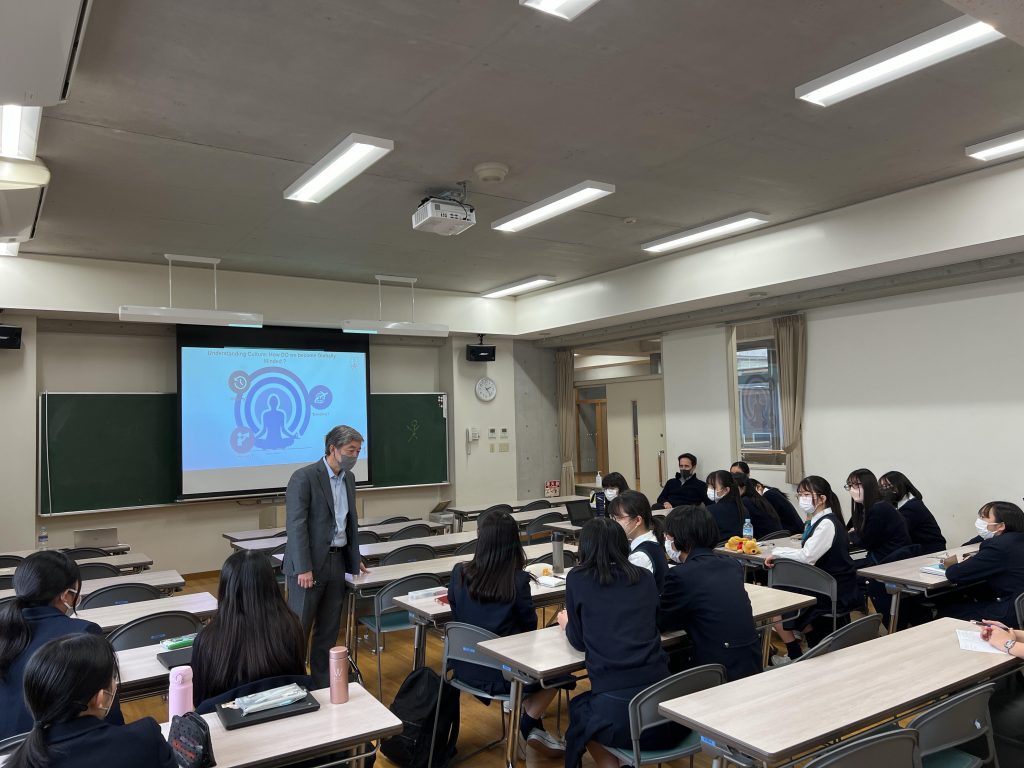
University List
JASP is privileged to have been given the opportunity to deliver JA Storytelling presentations to students at schools throughout Japan:
Akita International University
Aoyama Gakuin University
Asia University
Chuo University
Doshisha University
Gakushuin Women’s College
Gunma University
Hiroshima Jogakuin High School
Hiroshima Jogakuin University
Hitotsubashi University
International Christian University
Japan Women’s University
Juntendo University
Kansai Gaidai University
Kansai University of International Studies
Keiai University
Keio University
Kobe Women’s University
Kobe University
Kumamoto University
Kyoto University
Meiji University
Musashino University
Musashino Art University
Musashi University
Nihon University, College of Humanities and Sciences
Osaka Prefectural University
Rikkyo University
Ritsumeikan University
Seijo University
Shizuoka University
Showa Women’s University
Sophia University
Temple University Japan Campus
Tohoku University
Tokyo Gakugei University
Tokyo Institute of Technology
Tokyo University of Foreign Studies
Toyo Gakuen University
Toyo University
Tsuda University
Tsukuba University
University of the Ryukyus
University of Tokyo
Waseda University
JASP speakers meet live and in real time with Japanese university students attending a wide variety of classes, including:
- Intercultural Communication
- Gender and Human Rights
- Conflict Resolution and Creative Discussion
- Humanities and Social Sciences
- Global Studies in English
- Multicultural Social Work
- International Immigration and the Japanese Diaspora
- US-Japan Diplomatic Relations
- History of Japanese Immigration
- American Cultural History
- Contemporary American Politics and Society
- Minorities and the Law in the US
- Special Events (open school-wide)
Class sizes range from small seminars with 10 students to large lecture audiences with more than 100 students.
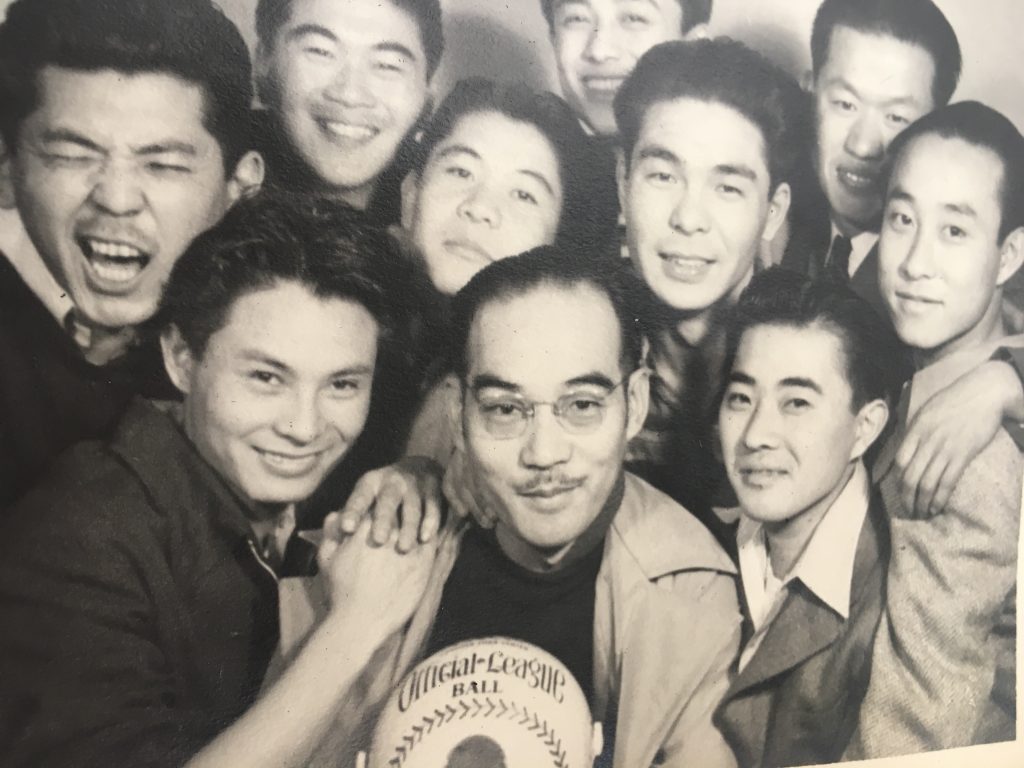
Voices
JASP seeks to nurture students towards an inclusive global mindset and also provides Japanese Americans with an opportunity to reflect on their personal and ancestral histories and identities.
Here are several voices from our program’s participants.
Host Professors
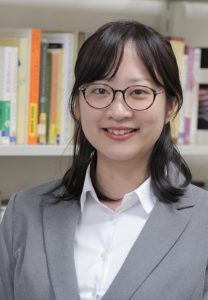
Learning about the individual and collective experiences of Japanese Americans plays a very important role for Japan-based students as they reflect on the diverse nature of migration and mobility and universal human rights. The U.S.-Japan Council’s Japanese American Storytelling Program is a great opportunity for students to become more familiar with how policies and norms taken throughout history have affected individuals.
Mishio Yamanaka
Assistant Professor
Sophia University
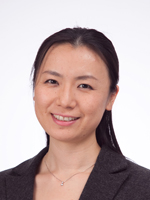
In the past, we had collaborative classes with American universities, but due to the pandemic, it has become difficult to continue collaborating. Under such circumstances, the JASP program provided a wonderful opportunity to connect various Japanese American speakers online with Japanese university students, who are rich in diversity in terms of regional and generational characteristics. Through this rare opportunity to directly hear the family and own life stories of Japanese American speakers in English, students can feel vividly how the history they learned in class is connected to modern society. In addition, the story of the career development of Japanese American speakers who are active internationally in various fields was a very good stimulus for university students who are about to go out into the world. Join the JASP program and experience the voices and history of Japanese Americans living today.
Yoko Tsukuda
Associate Professor
Seijo University
Faculty of Law
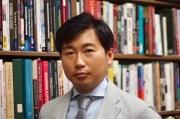
…For students who especially did not have the opportunity to meet various people during COVID-19, they not only heard valuable talks from their own homes, but also had the valuable learning opportunity to ask questions and engage in discussions on their own.
Yuki Oda
Faculty of Commerce Associate Professor
Chuo University
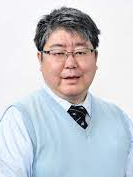
For students who grew up in Japan, I think Japanese Americans are close and distant. For example, even if you hear the story of incarceration camps during World War II in class, you probably don’t have many chances to hear the personal story of the person whose grandparents were actually interned. Also, in Japan, research on the history of Japanese Americans in an older era has been produced in great amount, but I think there are surprisingly few opportunities to come into contact with Japanese Americans who are living right now. I think that the U.S.-Japan Council’s Japanese American Storytelling Program is a great opportunity to take advantage of the network of professional Japanese Americans living in Japan to learn about the history, society and current situation of these Japanese Americans on a personal level. Please join us in this program and learn what Japanese Americans are like.
Okiyoshi Takeda, Ph.D.
Professor
Aoyama Gakuin University
Department of International Politics
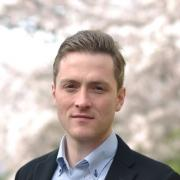
In the Global Studies in English course, and of course, being here in Hiroshima where issues of war and peace are so central, we often cover topics like identity, conflict, and discrimination. Yet, through the power of stories, and engaging with important, positive concepts like resilience, my students were able to link what we learn in the classroom to what they mean for the individuals living through them, leading to active and meaningful discussions that continued in the classroom and beyond.
Robert Dormer
Associate Professor
Department of International English
Hiroshima Jogakuin University
“Because JASP presentations are real life, personal stories, it was very meaningful to listen to the storytelling based on actual, rather than hypothetical or fictional experiences.”
~Host Professor
“It was a truly educational and meaningful lecture and interaction for students as well as myself.”
~Host Professor
“Last year, at least two of my students who heard the presenter who had Japanese American roots in Hawaii and came to me afterwards telling me that they became interested in pursuing their own roots (like they never really asked their grandparents about their experiences, and are now interested in doing so.)”
~Host Professor
“I will…contact my friends at several other universities in Japan. I’ll let you know if any of them are interested in hosting a speaker from your program.”
~Host Professor
The Japanese American Storytelling program provided a distinctive speaker who delivered his experience and knowledge to the class. His presentation not only mentioned the difficulties and advantages of having a unique background but illustrated a life lesson for students to reflect on. It was a great opportunity to have and the students and I would love to hear more from the storytellers.
~Student Presentation Coordinator
JASP Storytelling Coach

Our main focus at JASP is to nurture the confidence and global mindsight of students attending Japanese universities. My role on the team is to help prepare our JASP speakers to go into the classroom and share stories and create an interactive class together. Storytelling is one of the most ancient arts in history. We try to break up the class into “mini discussions” to help the students think about what is a global mindset, and how they can become a bridge between Japan and the rest of the world.
Patrick Newell
JASP Storytelling Coach
Professor, Shizenkan University
Co-Founder, TEDx Tokyo
JASP Speakers
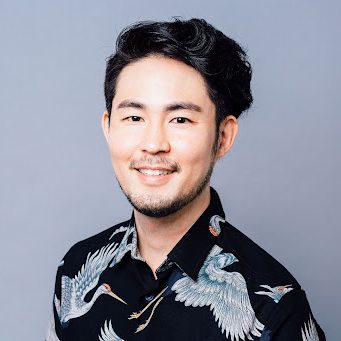
JASP provides role models for Japanese students to think about when facing the difficult decision of pursuing a non-traditional path during their undergraduate studies. Hence, I believe that JASP provides a diverse range of perspectives about the speakers’ work and careers to encourage Japanese students to think about their future more broadly, and more importantly, how the U.S.-Japan Council may be a vehicle to explore different academic and career paths.
Brandon Marc Higa
Attorney & Legal Scholar at the University of Hawaii, Manoa
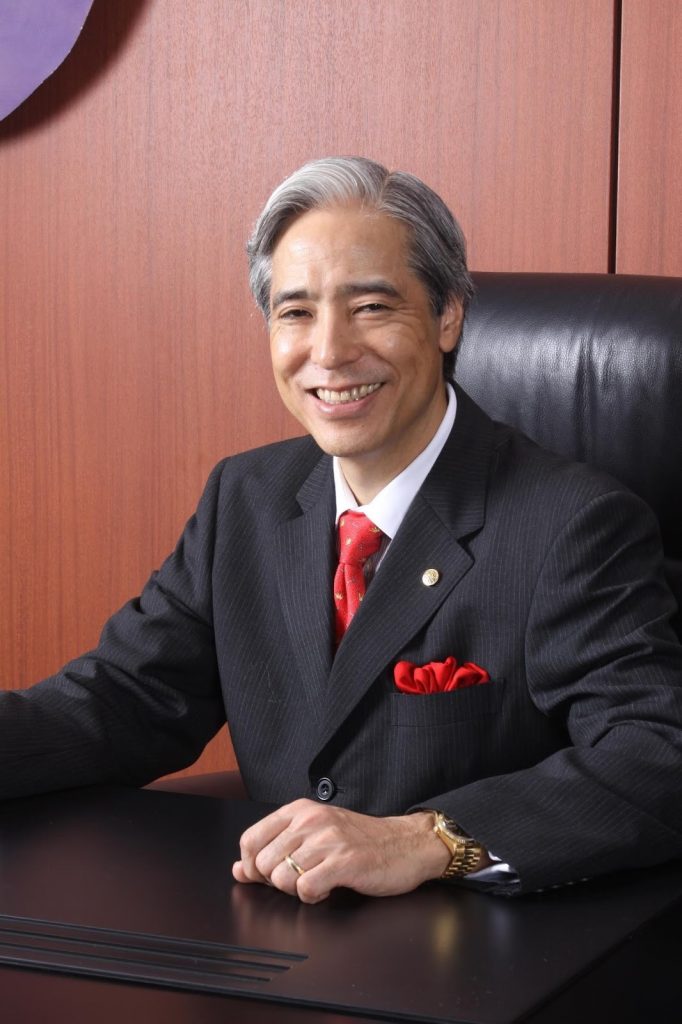
One of the key purposes of the US-Japan Council is to strengthen the relationship between the United States and Japan through people-to-people connections. Because of their heritage and citizenship, Japanese Americans can play an important role in this mission. JA Storytelling Program speakers meet with Japanese university students and tell personal, Japanese American stories. I talked with students about my father, born in Hawai’i, and how he brought US Major League Baseball teams to Japan in the 1950’s as part of a goodwill, “baseball diplomacy” tour. As a member of the US-Japan Council Board of Councilors and a JA Storytelling Speaker, I really encourage US-Japan Council members to become a speaker in the JA Storytelling Program.
Ernest M. Higa
Chairman, Chief Executive Officer and President
Higa Industries Co., Ltd.
Program Co-Leader/JASP Speaker
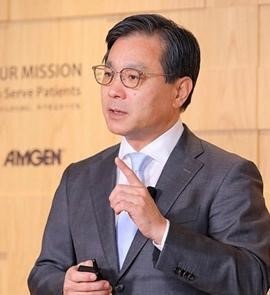
The youth are our future and JASP is a fundamental program of the USJC to connect the Japanese American experience with Japan across borders, across languages and across cultures. These JASP stories are brought to life in Japan specifically for the benefit of Japanese university students who are now embarking on their own independent lives into a much more global and complicated world. The stories are real life, family, personal stories, of overcoming challenges and hardships. For myself as a JASP speaker, this has been a life changing experience of reflection, learning and personal growth.
Steve Sugino
JASP Speaker/Program Co-Leader
President/Representative Director Amgen K.K.
Student Voices
“Living in Japan, I have had quite a few opportunities to consciously think about what is good about Japan compared to other countries and what needs improvement, but this presentation made me think about what I should do in the future. It also made me think about valuing the identity I have.”
“The quote “If today were the last day of my life, would I want to do what I am about to do today?” by Steve Jobs made me think about how I should live my life. I would like to take this quote to heart from today and live joyfully in my own way every day. Thank you very much for your valuable talk today.”
“I learned a lot. It seems difficult to think about one’s identity, but it is good to be able to look at ourselves from different aspects. Thank you very much for your excellent presentation.”
“This was the first time I heard about the Japanese incarceration camps. It was interesting to me because I had never thought about how Japanese Americans who were outside of Japan during the war were treated. I realized that knowing the historical backgrounds of people and countries is important for smooth and respectful communication in a society with diverse nationalities and genders. Even though I was not good at English, I appreciated that they followed up in Japanese. I was also told that English is a strong common language in a multinational society, which motivated me to learn more English so that I can speak it better.”
“I felt that it is important to eliminate the assumption that Japanese people look the same and speak the same language. I hope that the number of different types of Japanese people will increase in the future, and that Japanese people themselves will be able to imagine a more diverse Japan.”
“We were able to learn about the pains the JA speaker felt because he lived in two different countries, Japan and the U.S., and the ideas he gained from these experiences. Thank you very much for your valuable talk.”
“I thought it was important to keep encouraging yourself even when you are having a hard time because of the environment and circumstances.”
“When I hear the word “identity”, I tend to look at myself in terms of race or gender, but I realized that I can use the word to describe all the things that make up who I am today, including my daily life, family structure, and experiences, and I found it easier to define myself than ever before. I also found the presentation easier to understand because the JA speaker provided a lot of background information.”
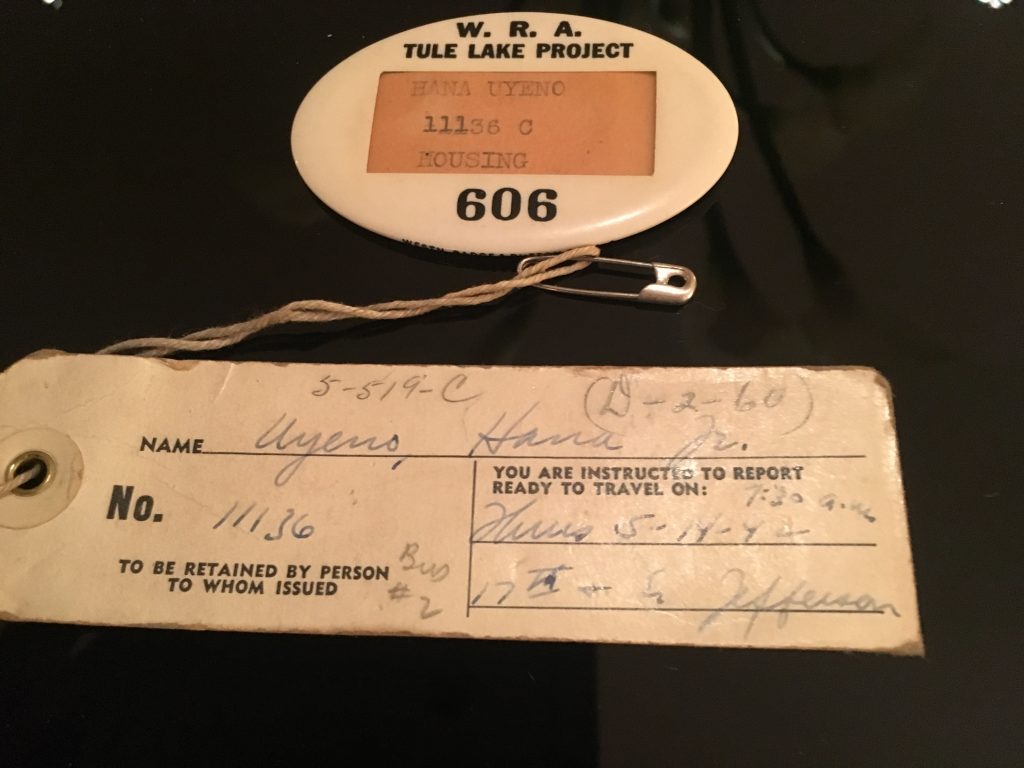
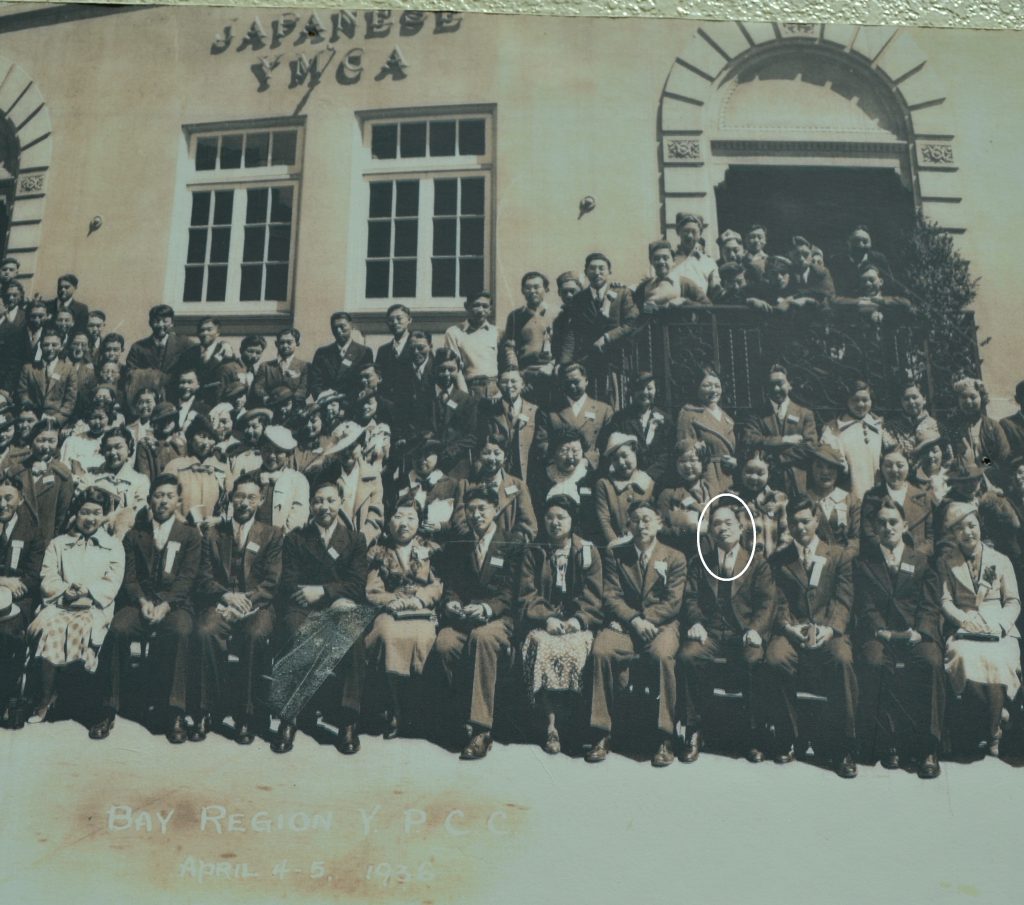
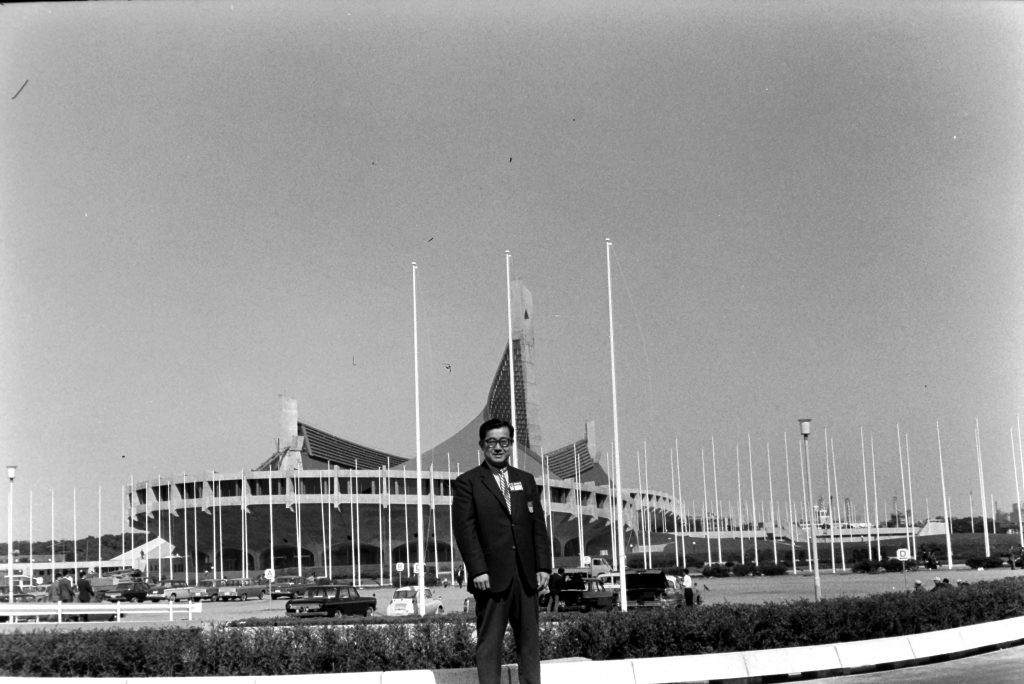
JASP NEWS
(February 2023) 2022 Year in Review
February 7th, 2023
During its second full year of operation in 2022 since its Fall 2020 launch, the US-Japan Council’s “Japanese American Storytelling Program” (JASP) successfully completed 60 presentations to universities in Japan, an increase of 20% over the number given in 2021.
As hoped, JASP again reached students throughout many regions in Japan, including Akita, Hiroshima, Kobe, Kumamoto, Kyoto, Okinawa, Osaka, Tohoku and Shizuoka, as well as 20 schools in the Tokyo/Kanto region.
Praising JASP’s intentional selection of storytelling as a vehicle to convey positive, lasting messages, one university student commented,
“Living in Japan, I have had quite a few opportunities to consciously think about what is good about Japan compared to other countries and what needs improvement, but this presentation made me think about what I should do in the future. It also made me think about valuing the identity I have.”
Said another student,
“I felt that it is important to eliminate the assumption that Japanese people look the same and speak the same language. I hope that the number of different types of Japanese people will increase in the future, and that Japanese people themselves will be able to imagine a more diverse Japan.”
Active student engagement throughout all stages of the speaker presentation is a hallmark of the program. Said one host professor,
“In the past, we had collaborative classes with American universities, but due to the pandemic, it has become difficult to continue collaborating. Under such circumstances, the JASP program provided a wonderful opportunity to connect various Japanese American speakers online with Japanese university students, who are rich in diversity in terms of regional and generational characteristics. Through this rare opportunity to directly hear the family and own life stories of Japanese American speakers in English, students can feel vividly how the history they learned in class is connected to modern society. In addition, the story of the career development of Japanese American speakers who are active internationally in various fields was a very good stimulus for university students who are about to go out into the world. Join the JASP program and experience the voices and history of Japanese Americans living today.”
JASP is a program for USJC members to convey positive educational messages to Japanese youths. Through their personal and unique family history narratives, JASPers communicate positive messages including tolerance and empathy, overcoming discrimination and prejudice, strengthening diversity in society, and building bridges between the U.S. and Japan.
(October 2022) JASP featured at the USJC Annual Conference
October 27, 2022
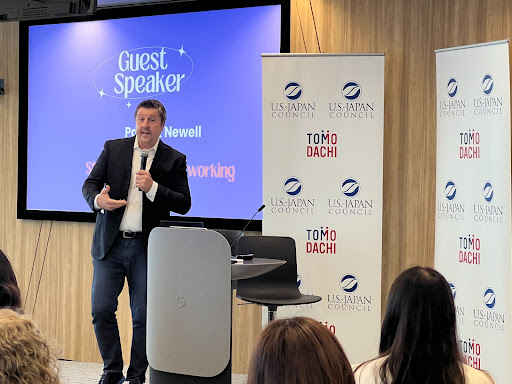

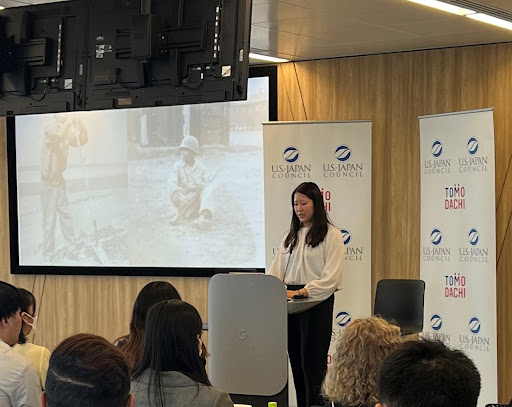
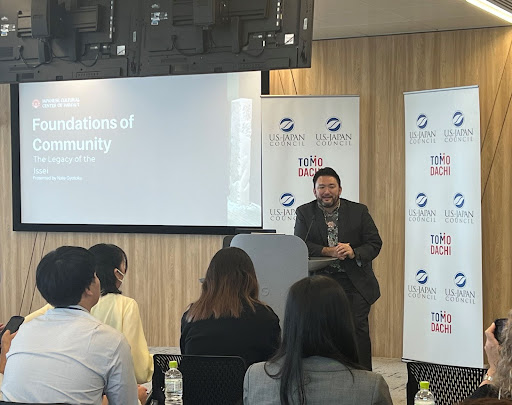
October 27, 2022 was TOMODACHI day, part of the USJC’s recent annual conference in Tokyo. Several JASPers were invited to present their stories, including Eriko Stronach, who talked about her experiences as a Japanese American; Nate Gyotoku, who introduced the legacy of the Meiji Gannen Mono, the first Japanese immigrants who came to Hawai’i; and finally Patrick Newell, who gave a powerful lesson on storytelling.
Special mention to our very own JASP intern, Sarina Noma, who did an excellent job introducing the program and the speakers. Over 65 young leaders from the TOMODACHI and Watanabe Scholar programs participated. The group consisted of both Americans who are studying abroad in Japan now, Japanese who have studied abroad and are interested in international careers, and young professionals who work and live in both Japan and the United States.
Sarina adds, “It was an amazing opportunity to meet and speak with Eriko and Nate in-person, as well as connect with TOMODACHI alumni!” Thank you again to JASPers for your time, support, commitment, and encouragement to the next generation.
(August 2022) USJC x JACL: “The Power of Words” Event
August 12, 2022
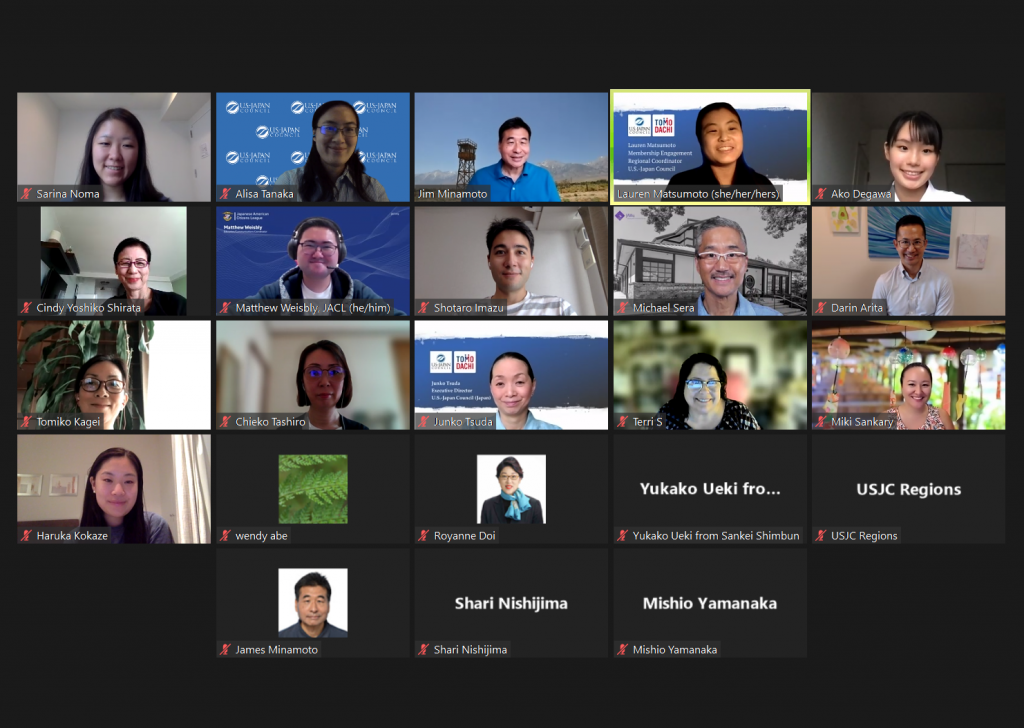
On the morning of Friday, August 12, 2022, JASP hosted an event about “terminology” in collaboration with the Japanese American Citizens League (JACL). Matt Weisbly, who is the JACL Education and Communications Coordinator, gave the presentation “The Power of Words.”
This topic is very important since the terminology we choose to describe Nikkei wartime experiences such as “internment” or “incarceration” have lasting impact on the next generation of leaders in both the US and Japan.
Participants included JASP Speakers, Host Professors, USJC Staff and Members. They learned about the terminology used in the context of Japanese American history and their euphemisms. Additionally, participants discussed their questions and experiences surrounding the topic.
You can watch the video recording of the event by clicking on the button below.
(August 2022) JASP Successfully Completes 31 Presentations in Spring 2022 Semester
August 3, 2022
During the Spring 2022 academic semester, the US-Japan Council’s “Japanese American Storytelling Program” (JASP) successfully completed 31 presentations to universities in Japan, a significant increase over the 20 presentations given in the Spring of 2021.
Praising JASP’s intentional selection of storytelling as a vehicle to convey positive, lasting messages, one university student commented,
“I do not have any foreign names in my family tree and consider myself a Japanese born and bred
in Japan, but in high school I had many classmates from various backgrounds, so [JASP Speaker]’s
definition of “diversity” as one where “everyone is different and can be active as they are” made
perfect sense to me. I learned that even though [JASP Speaker]’s parents are Japanese people and she was born in Okinawa, she sometimes struggles between two identities depending on her
environment. In a society where globalization is progressing and family structures will become
more diverse, this lecture taught me a way of thinking that will be very important in the future.
Thank you very much for your valuable talk today.”
As hoped, JASP expanded its reach to new regions of Japan including Tohoku and Kumamoto.
JASP is a program for USJC members to convey positive educational messages to Japanese youths. Through their personal and unique family history narratives, JASPers communicate positive messages including tolerance and empathy, overcoming discrimination and prejudice, strengthening diversity in society, and building bridges between the U.S. and Japan.
(July 2022) TOMODACHI MUFG International Exchange Program 2022 (Online)
July 16, 2022
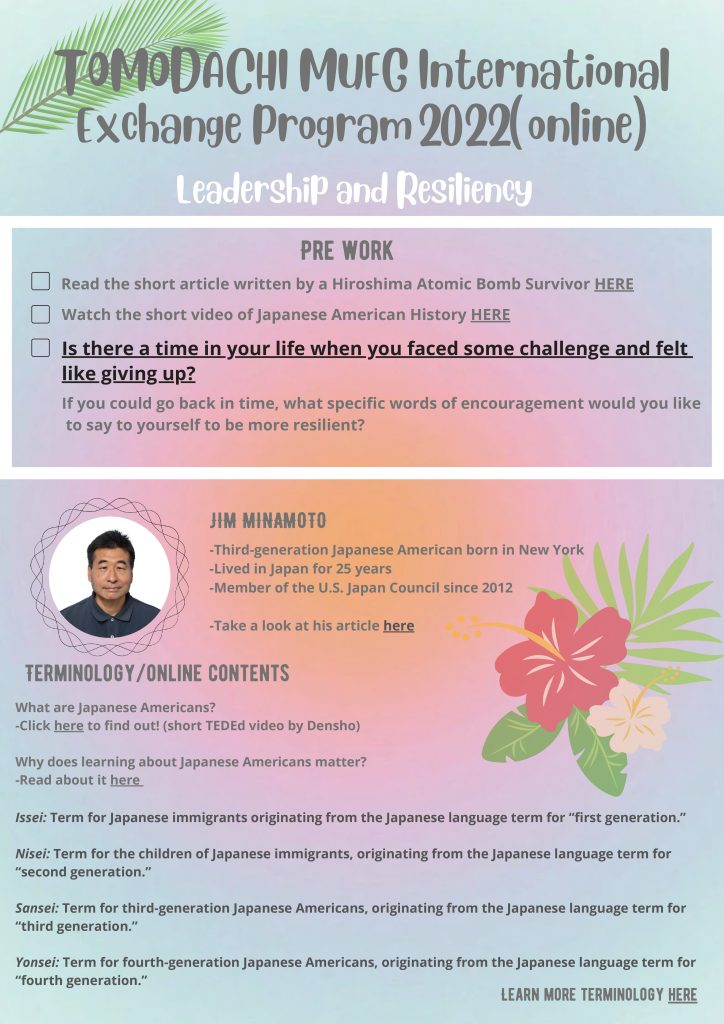
The TOMODACHI MUFG International Exchange Program is a 5-part program that takes place over a course of roughly a month with one session a week on the weekends. During the program, the high school students have opportunities to learn about Japanese society and culture, and leadership through this year’s theme of resiliency. The program features opportunities to meet with Japanese people through interactions with local high school students.
On Saturday, July 16, 2022, JASPer Jim Minamoto gave a presentation about resilience as a part of their Resiliency and Leadership Session.
(June 2022) Seizing Opportunity During the COVID-19 Crisis—The Power of Cross-Cultural Storytelling
June 13, 2022
A volunteer group of Japanese Americans in Tokyo found opportunity in the COVID-19 pandemic and launched a pro bono, non-profit educational program to nurture a more global mindset among university students in Japan based on the ancient art of storytelling.
The climate “crisis,” the global financial “crisis,” the refugee “crisis.” We hear the word “crisis” a lot these days, oftentimes describing a serious, widespread, problem. Some readers will recognize that the Chinese characters (kanji) for “crisis” (“kiki”/危機), are made up of the characters for “danger” (危) and “opportunity” (機). Rather than fearing the character for danger during the COVID-19 pandemic, however, a non-profit group of Tokyo-based Japanese Americans (JA) acted on the second character. They seized opportunity during the crisis, launching a pro bono educational program for young, next generation Japanese leaders called the Japanese American Storytelling Program (JASP). This is their story.
Read the full article here (English version).
You can also read the full article in Japanese.
(Feb 2022) JASP Successfully Completes 50 Presentations in 2021 – its First Full Year Since Launch
February 28, 2022
During its first full year of operation in 2021 since its Fall 2020 launch, the US-Japan Council’s “Japanese American Storytelling Program” (JASP) successfully completed 50 presentations to universities in Japan, a significant increase over the nine presentations given in its inaugural year 2020.
As hoped, JASP expanded the program’s geographic reach, presenting to university student audiences in Okinawa, Hiroshima, Kyoto, Kobe, Osaka, Shizuoka and Gunma, as well as over 10 schools in the Tokyo region.
JASP also continued to diversify its speaker base, offering storytellings by not only “traditional” Sansei and Yonsei, but also Shin Issei, Shin Nisei and Multi-Ethnic Nikkei, based in Hawaii and the Mainland US, as well as Japan.
Presentation themes included Resilience, Building Bridges, Expanding Horizons and Comfort Zones, Entrepreneurship and Pursuing Passions, Discovery of Cultural Identity, Women’s Empowerment, Reconnecting with a Biological Parent, Coming Out, and the Advantages of DE&I in Business.
Praising JASP’s intentional selection of storytelling as a vehicle to convey positive, lasting messages, one university student commented, “the message of the story can be felt…I know how it feels when other people treat us differently…When I felt like giving up something, I remember that life isn’t always rainbow and butterfly, there must be rain someday. Just try to move on and always try my best… After this seminar I will be more motivated.”
Active student engagement throughout all stages of the speaker presentation is a hallmark of the program. Said one host professor, “through the power of stories, and engaging with important, positive concepts like resilience, my students were able to link what we learn in the classroom to what they mean for the individuals living through them, leading to active and meaningful discussions that continued in the classroom and beyond.”
JASP plans to continue its expansion in 2022, with presentations in new regions of Japan including Tohoku and Kumamoto.
JASP is a program for USJC members to convey positive educational messages to Japanese youths. Through their personal and unique family history narratives, JASPers communicate positive messages including tolerance and empathy, overcoming discrimination and prejudice, strengthening diversity in society, and building bridges between the U.S. and Japan.
(Feb 2022) Hiroshima Jogakuin University Article – Learning about Japanese Americans and Immigration
February 14, 2022
The U.S.-Japan Council is an organization that is committed to many kinds of economic, political and social projects that strengthen the relationship between the United States and Japan. Recently, one of their programs has been the ‘Japanese American Storytelling Program’ (JASP), which speaks to audiences in both Japan and the United States about a range of issues, especially history, diversity, empathy, and connections between the two countries.
Recently, some Global Studies in English course (GSE) students were very lucky to be invited to an interactive session hosted by James Minamoto. Joining us online, he gave an engaging and interesting class, entitled ‘Resilence’. In this story, we follow the life of a Japanese-American girl, who leaves Hiroshima for the United States, is forced back to Japan, but eventually, returns to the United States. In the course of her life, she faces challenges that are difficult to imagine, and throughout the lecture, students answered questions, explained their own feelings, and tried to put themselves in the shoes of others.
I asked Mr Minamoto if he would share his motivations for this program, and how he felt about the session here at Hiroshima Jogakuin University.
“I thoroughly enjoyed presenting the story of my mother’s challenges and resilience to the GSE students, as well as discussing their insightful questions and comments. Through our Japanese American Storytelling Program, we try to pass on positive messages to university students all throughout Japan – the future leaders of the country. Thank you for giving us this wonderful opportunity.”
The students themselves did a good job of engaging with difficult topics and showed empathy and deep reflection when asked questions. I asked one of the students to share her perspective on the seminar:
“I liked how the speaker told us about the story. The message of the story can be clearly felt, and some parts I could easily relate to my own life, which impressed me greatly. I know how it feels when other people treat us differently. When I feel like giving up, I remember that life isn’t always rainbows and butterflies and that there must be rain sometimes, and we must try to move on and always try our best. After this seminar, I will be more motivated, and I want to be strong, like the speaker’s mother was, in facing challenges”.
In the GSE course, we are always trying to connect topics in the classroom with the real world. Through real-life stories and the generosity of Mr Minamoto and his colleagues in the JASP program of the U.S.-Japan Council, we had an enjoyable afternoon. Thank you!
Read the full article here.
(Dec 2021) Television News Coverage of JASP Speaker Steve Sugino’s Presentation
December 21, 2021
The US-Japan Council’s “Japanese American Storytelling Program” (JASP) received television news exposure on December 18, 2021, when JASP Speaker and Program Co-Leader Steve Sugino’s presentation at Gunma University was covered by local media.
Entitled, “The Movie of Your Life,” Steve’s presentation to an audience of international and Japanese university students recounted his own personal and professional journey as a Nikkei Sansei from Southern California, and the life changing decisions he made to study, and then work in Japan as the first US citizen “International Trainee” at the Bank of Tokyo. After a career in finance in New York City, Steve focused his professional career in health care and currently leads the Japan operations of a major biotechnology company.
Steve’s presentation provided insights on the new challenges facing students because of the globalization of Japanese companies amid the expanding environment of diversity. His presentation was one of the more than 50 live, real time presentations JASP speakers have given to university students in Japan since the program’s launch in the Autumn of 2020.
JASP is a program for USJC members to convey positive educational messages to Japanese youths. Through their personal and unique family history narratives, JASPers communicate positive messages including tolerance and empathy, overcoming discrimination and prejudice, strengthening diversity in society, and building bridges between the U.S. and Japan.
(Jan 2021) USJC: JASP Launches Inaugural Storytelling Presentations
USJC Newsletter January 14, 2021
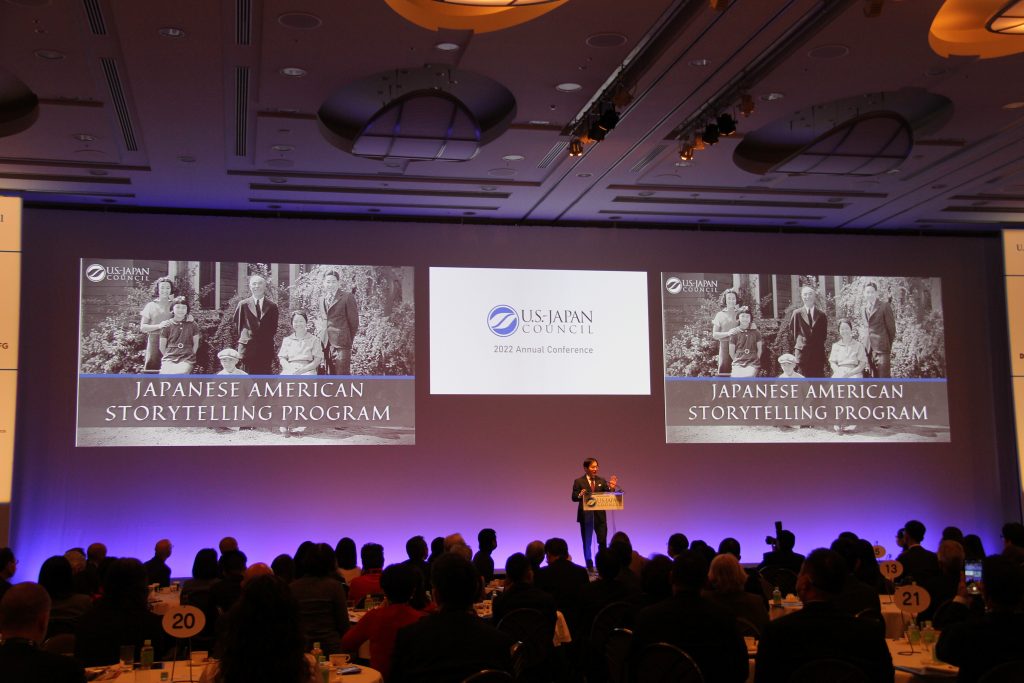
Program FAQs
The Japanese American Storytelling Program (JASP) is a non-profit, educational program of the U.S.-Japan Council.
JASP seeks to convey positive messages to university students in Japan – the future leaders of the country – through the art of storytelling. Importantly, JASP presentations are not general lectures on Japanese American history. Rather, the personal nature of the stories and the unique journey traveled by the speaker and ancestors is a key feature of the program. That is what makes JASP’s presentations heartfelt, memorable and, hopefully, impactful.
Q-1: More Specifically, What Are Some Examples of JASP Presentation Topics/Themes?
Our JASP Speakers have given personal, unique storytellings on the following topics:
- Redefining the Meaning of Being “Japanese” in the 21st Century
- Tolerance, Empathy and Appreciating Differences
- The Japanese Diaspora and Migration
- Resilience (Fall Down 7 Times, Get up 8)
- Building Bridges between the US and Japan
- Expanding Your Horizons and Comfort Zones
- Entrepreneurship and Pursuing Passions
- Discovery of One’s Cultural Identity
- Women’s Empowerment
- The Hawai’i Japanese American Experience
- Our Heritage Gives Us Roots and Wings
- My Journey of Not Belonging and Self-Acceptance
- The Movie of Your Life
- Coming Out
- Wartime Experiences of JA’s
- The Advantages of DE&I in Business
Q-2: Who are the JASP Speakers?
JASP Speakers come from a diverse group of USJC members who broadly identify as Japanese American, including Nikkei Sansei and Yonsei, Multi-Ethnic Nikkei, Shin Issei (post-war Japanese immigrants to the US), Shin Nisei (US-born children of Shin Issei), and Japanese returnees (Kikoku Shijo) from the US. They range from next generation young leaders to senior executives, in the private as well as non-profit sectors.
Most JASP Speakers are based in Japan, but others are located in Hawaii, California and other parts of the US Mainland. Most are native English speakers, and some are bilingual Japanese speakers.
Q-3: What Student Language/Academic Level is Needed for JASP Presentations?
Almost all JASP presentations use English as the primary presentation language, including the visual presentation slides. However, some JASP Speakers can also provide occasional verbal explanation in Japanese when needed. A few can also give verbal presentations mostly in Japanese. We try to give special attention to pair a suitable JASP Speaker with each Host Professor’s class, and usually find that neither English level capability nor general academic level is a big issue for university students. We also find that use of professional translators does not necessarily work especially well for JASP storytellings.
Q-4: When are JASP Presentations Given?
JASP offers presentations in the Spring academic term (April-July) and the Fall academic term (September-January). A Host Professor can request a presentation in either or both terms, subject to JASP speaker availability.
Q-5: How are JASP Presentations Given – Live or by Pre-Recorded Videos?
All JASP presentations are given live (real time). One of the hallmarks of the program is the opportunity for students and JASP speakers to interact directly during presentations in real time, using tools such as pop quizzes, student voting/polling and breakout rooms as well as traditional Q&A. Total presentation time including student discussion/Q&A time is usually 80–90 minutes.
Q-6: Where are JASP Live Presentations Given? Anywhere in Japan?
Yes! Currently, almost all JASP presentations are given virtually using an online conferencing system such as Zoom. This allows JASP Speakers to present live to students in universities all across Japan. For example, we have already given live JASP presentations via Zoom to students in Okinawa, Hiroshima, Yamaguchi, Kyoto, Kobe, Osaka, Shizuoka, Akita, as well as Tokyo. JASP warmly welcomes requests from Host Professors in every Japan prefecture.
Q-7: When Will I Know if JASP Can Provide a Speaker for My Class?
We generally inform Host Professors at least a couple of months before the start of an academic semester whether or not we can provide a JASP speaker. Further, we generally notify Host Professors of the specific JASP Speaker assigned to their class about 1 month before the start of the academic semester; for example, in March before the start of the Spring semester in April, or in August before the start of the Fall semester in September.
Please note that if we receive a request to host a JASP Speaker sometime during a Spring semester (April-July), the earliest we can provide a Speaker is usually the following Fall semester (September-January).
Q-8: Are JASP’s Live Presentations Video Recorded? What About Student Privacy?
Yes, where a JASP presentation is given virtually such as via Zoom, we might ask for Host Professor permission to video record. In that case, we edit out all student names and faces to protect their privacy. We also ask in turn that the personal information of the JASP Speaker be respected by the students.
Q-9: Is There A Speaking Fee or Charge for JASP Presentations?
No. There is no charge or fee for JASP presentations. If a JASP Speaker travels some distance to a university campus to give a presentation, however, reimbursement of transportation expenses can be accepted at the discretion of the individual speaker.
Q-10: Is JASP Open to the Public?
If you are a professor/educator teaching a class at a university located in Japan, we welcome your inquiry to host a JASP Speaker. Please kindly submit background details on you and your class, and we will be in touch with you after receiving your responses:
JOIN US!
For Professors at Japan-Based Universities
JASP warmly welcomes requests from professors at Japan-based universities to join our program and host a JASP speaker in their class. Please provide some basic background details about you and your class here.
We will contact you after receiving your background details. We try our best to accommodate as many requests as possible from professors at Japan-based universities, subject to demand for and availability of our speakers.
For USJC Members
If you are a USJC member with a Japanese American story to tell, please consider joining us as a JASP Speaker (or “JASPer”) and tell us more about yourself here!
JASPers include not only “traditional” Sansei/Yonsei/Gosei, but also Shin Issei (post-war Japanese immigrants to the US), Shin Nisei (children of Shin Issei) and Bi-Racial/Multi-Ethnic Nikkei; in short USJC members with a personal Nikkei – JA story to tell.
We will contact you after receiving your background details. If you are not yet a USJC member, your membership application can be processed in parallel with your JASPer application. In addition to Japan-based and Hawaii-based USJC members, the program is open to Mainland US members. Presentations are all given live, during Japan Standard Time hours (e.g., 9am to 6pm JST), currently via Zoom or other similar on-line platform.
For details on the USJC Privacy Policy, please see here.
For Students Interested in an Internship (Remote)
The Japanese American Storytelling Program (JASP), a U.S.-Japan Council program, is seeking an Intern on a part-time basis.
The JASP Internship offers a distinctive opportunity for college students and graduate students who are especially interested in learning about the experiences of Japanese Americans (e.g., Nikkei, Sansei, Yonsei, etc.), Shin Issei (post-war Japanese immigrants to the U.S., including “kikoku shijo”), Shin Nisei (children of Shin Issei born in the U.S.) and multi-racial Nikkei (“Hapa” Nikkei), including those living in Japan and in the United States. Learn more about the internship here.
Thank you for your interest in JASP!
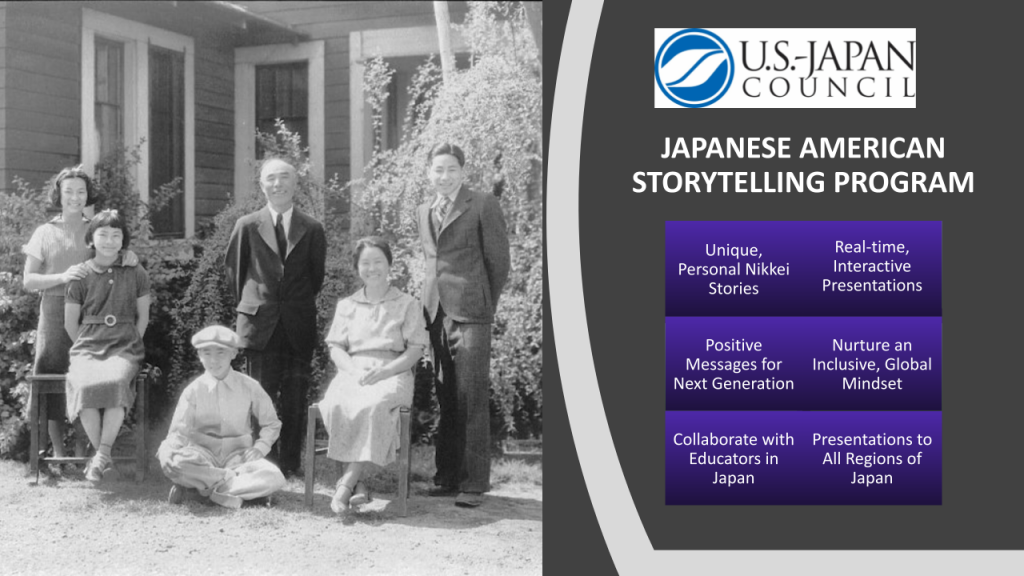
This webpage of the Japanese American Storytelling Program was made possible by generous support from the Japan Foundation.